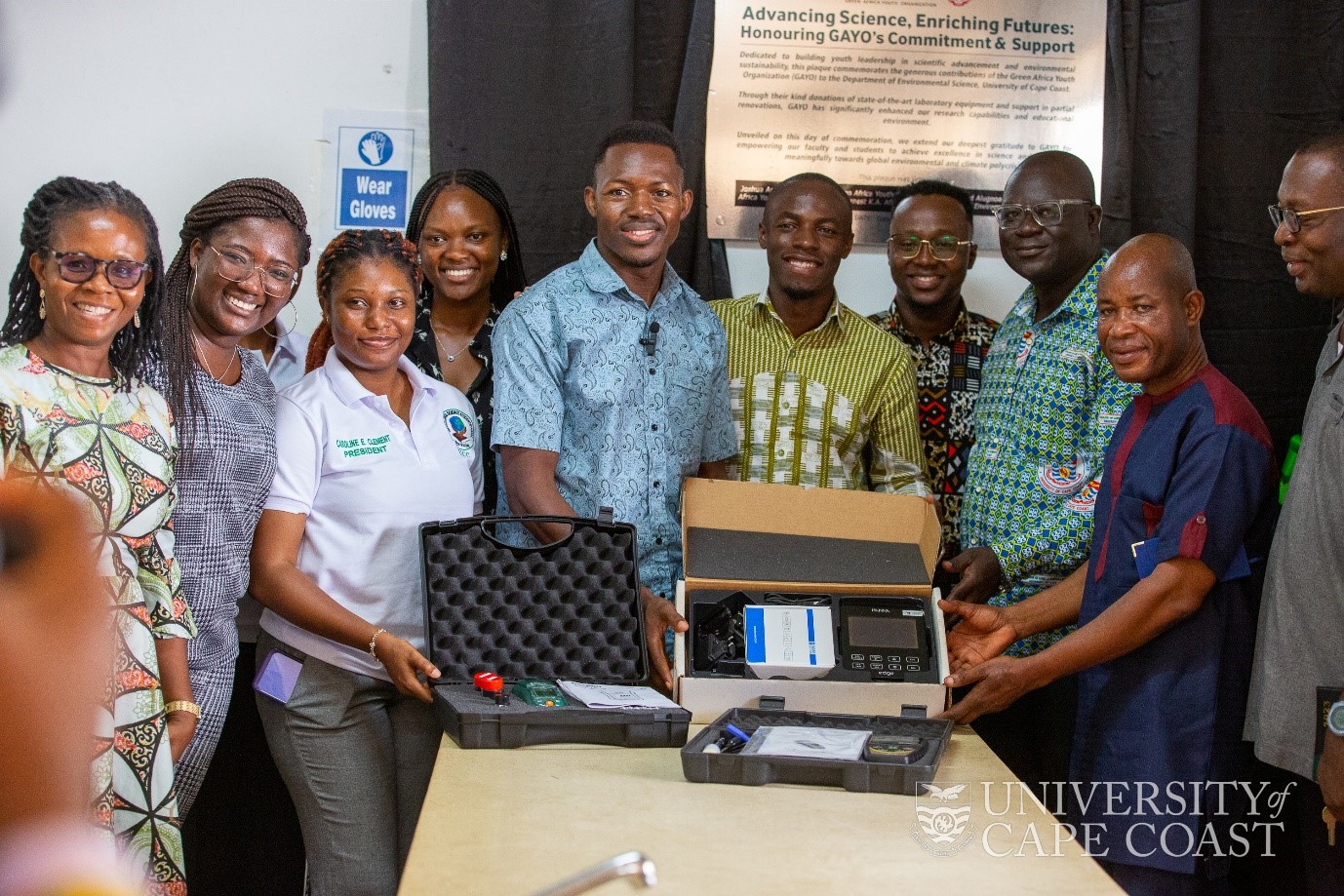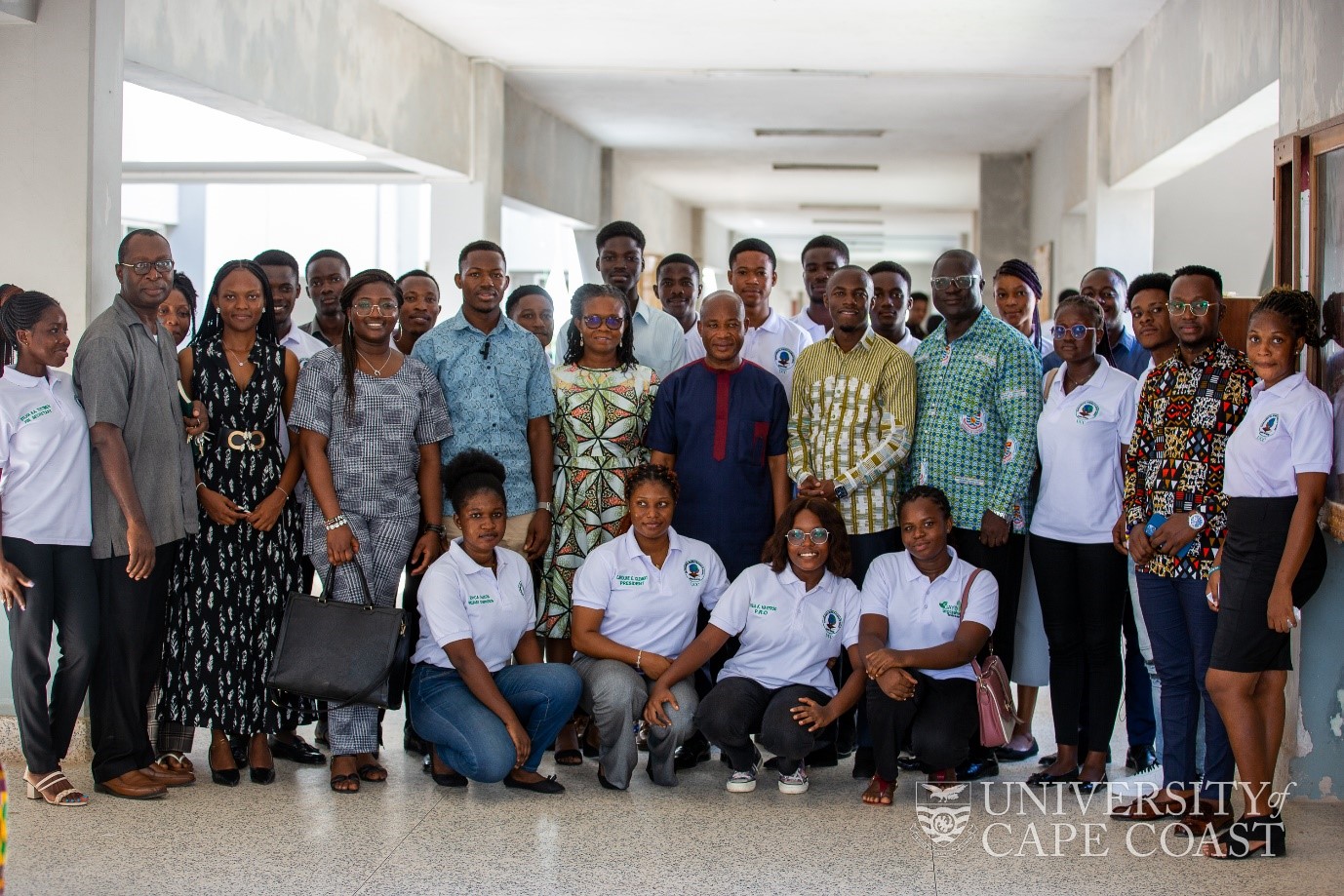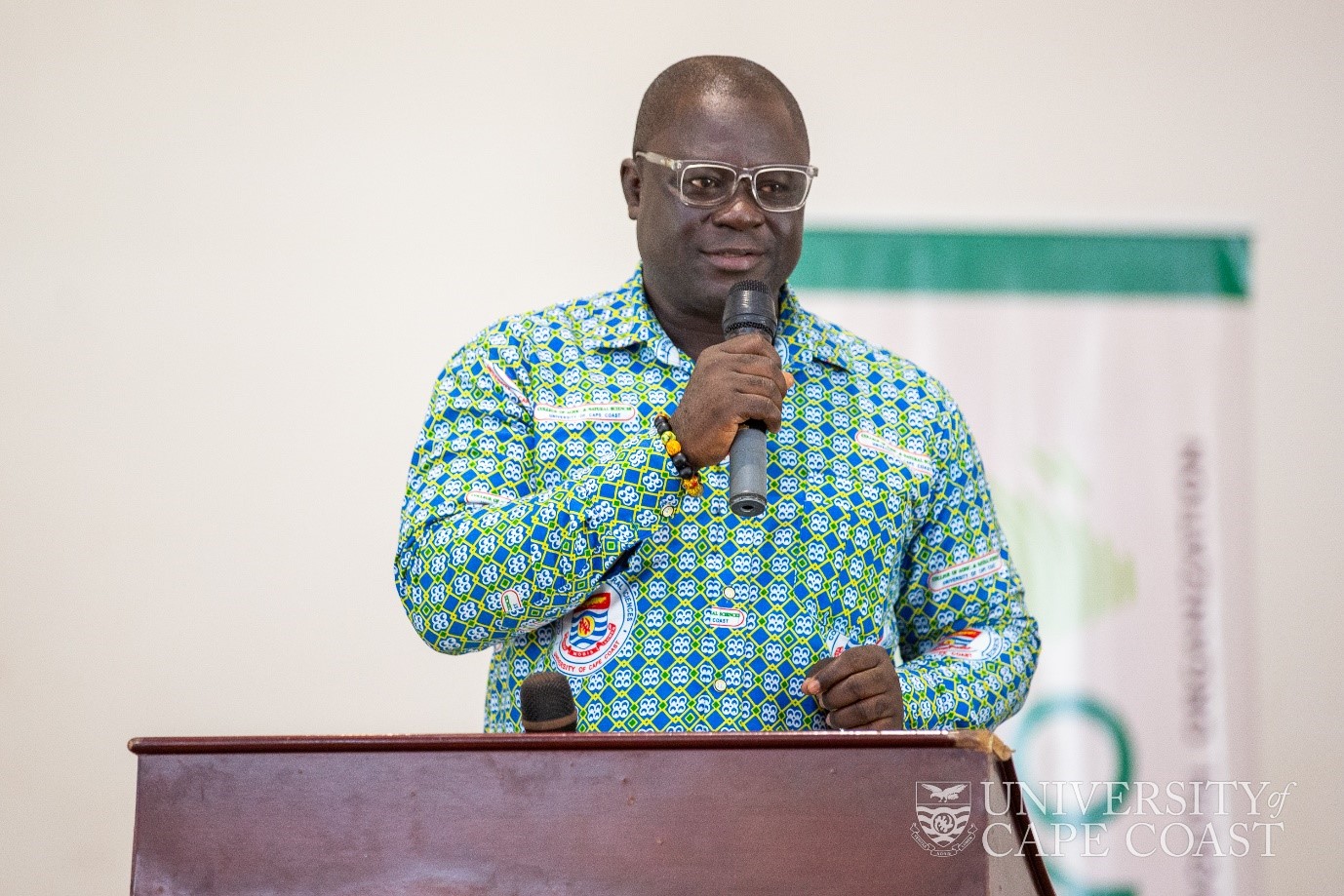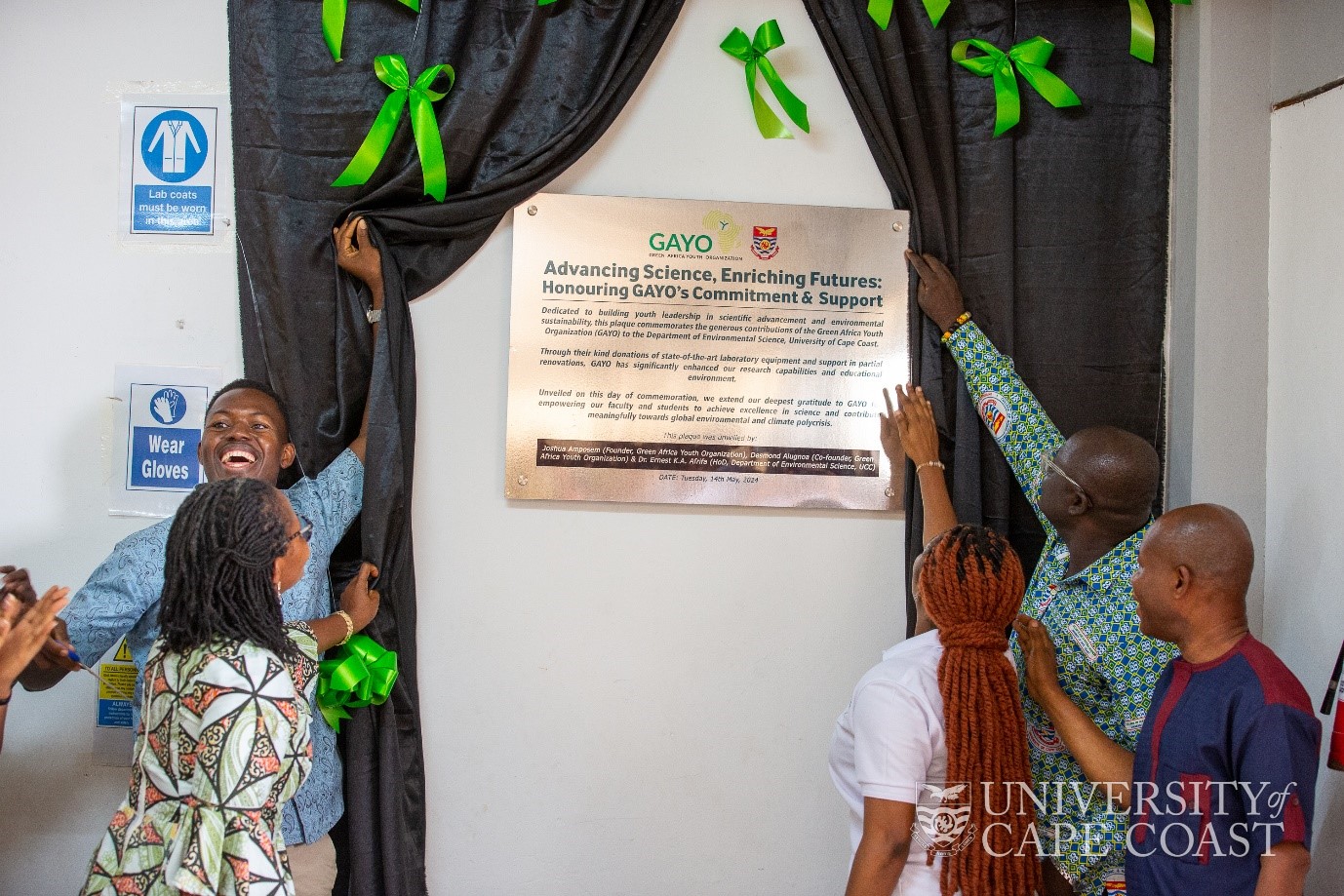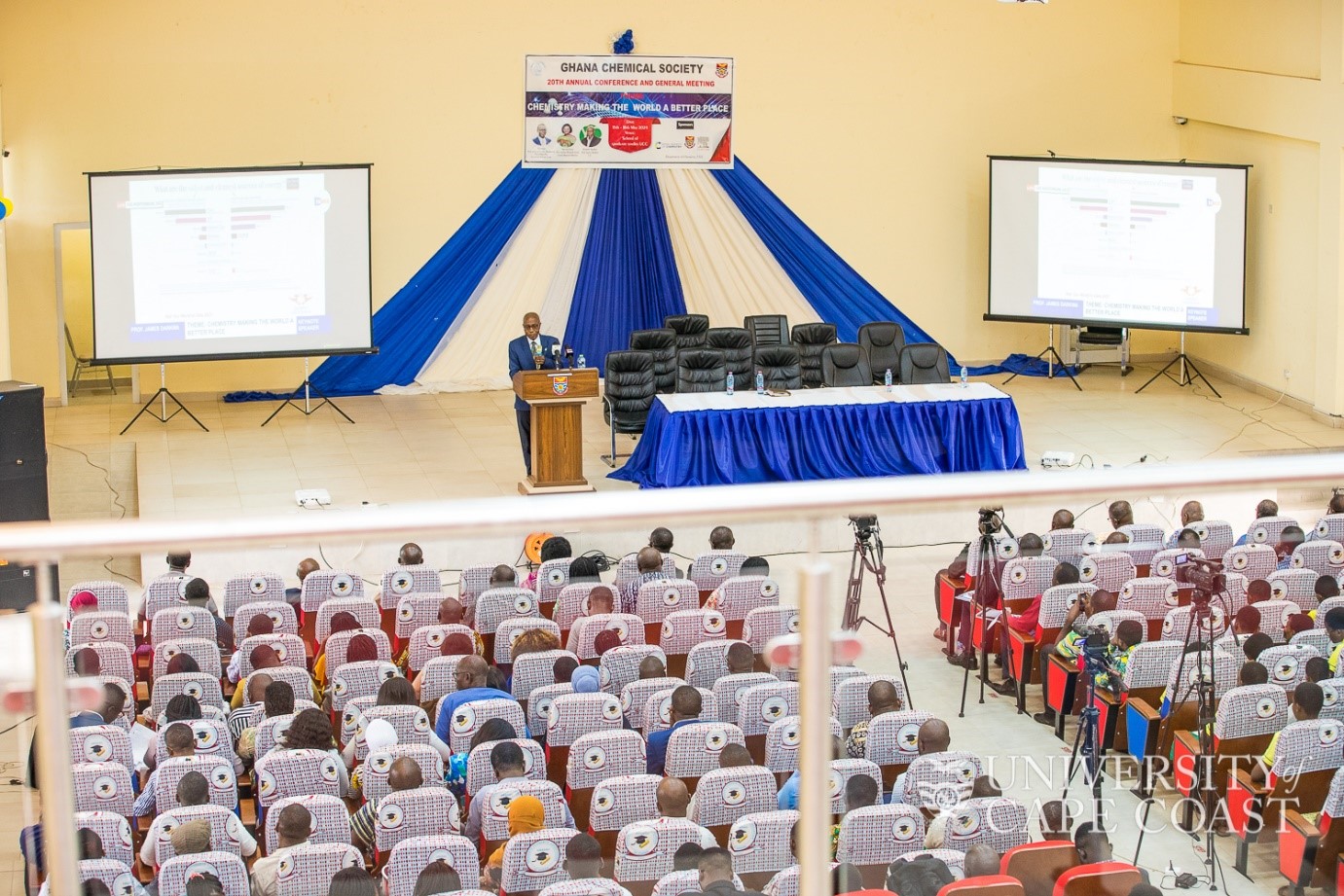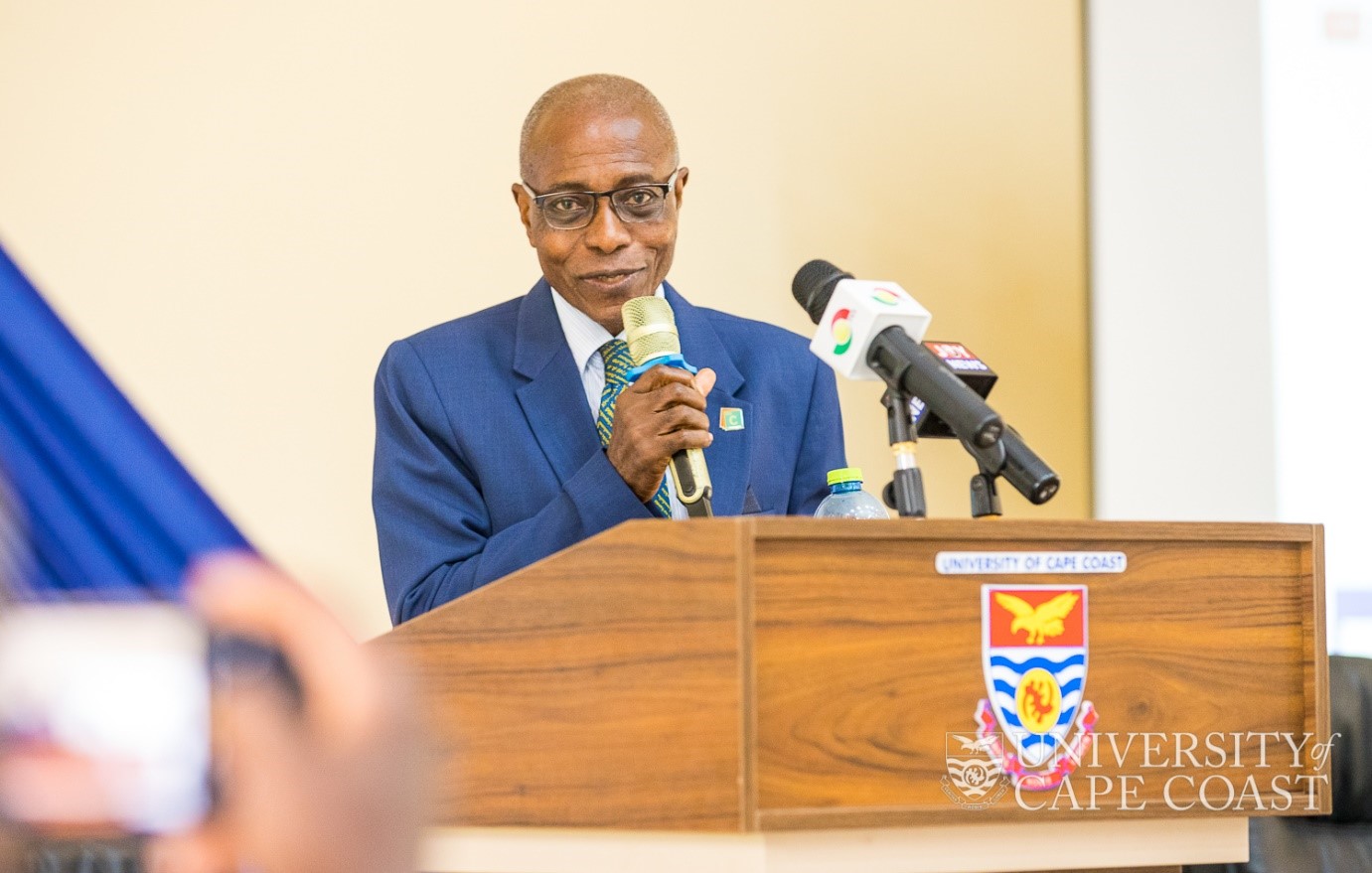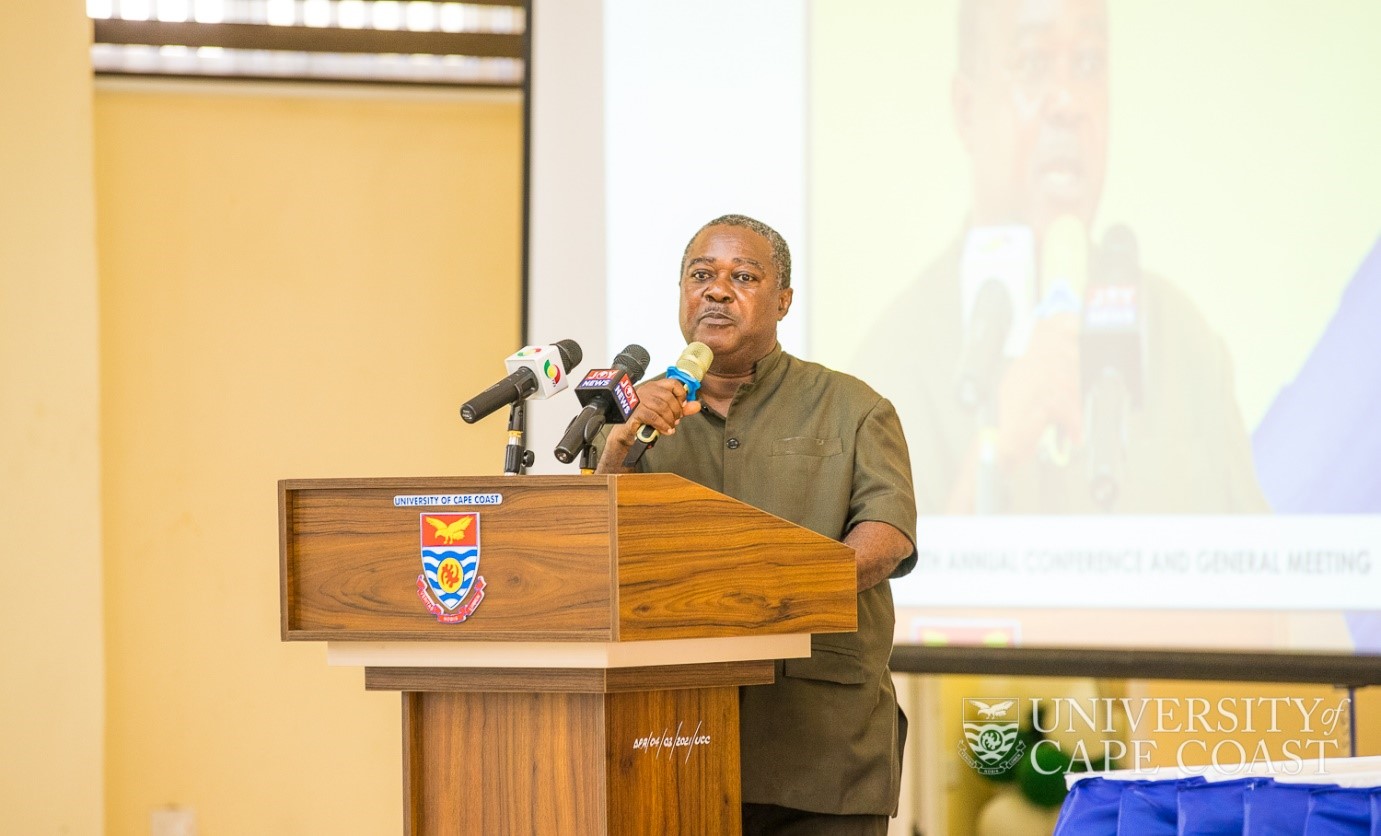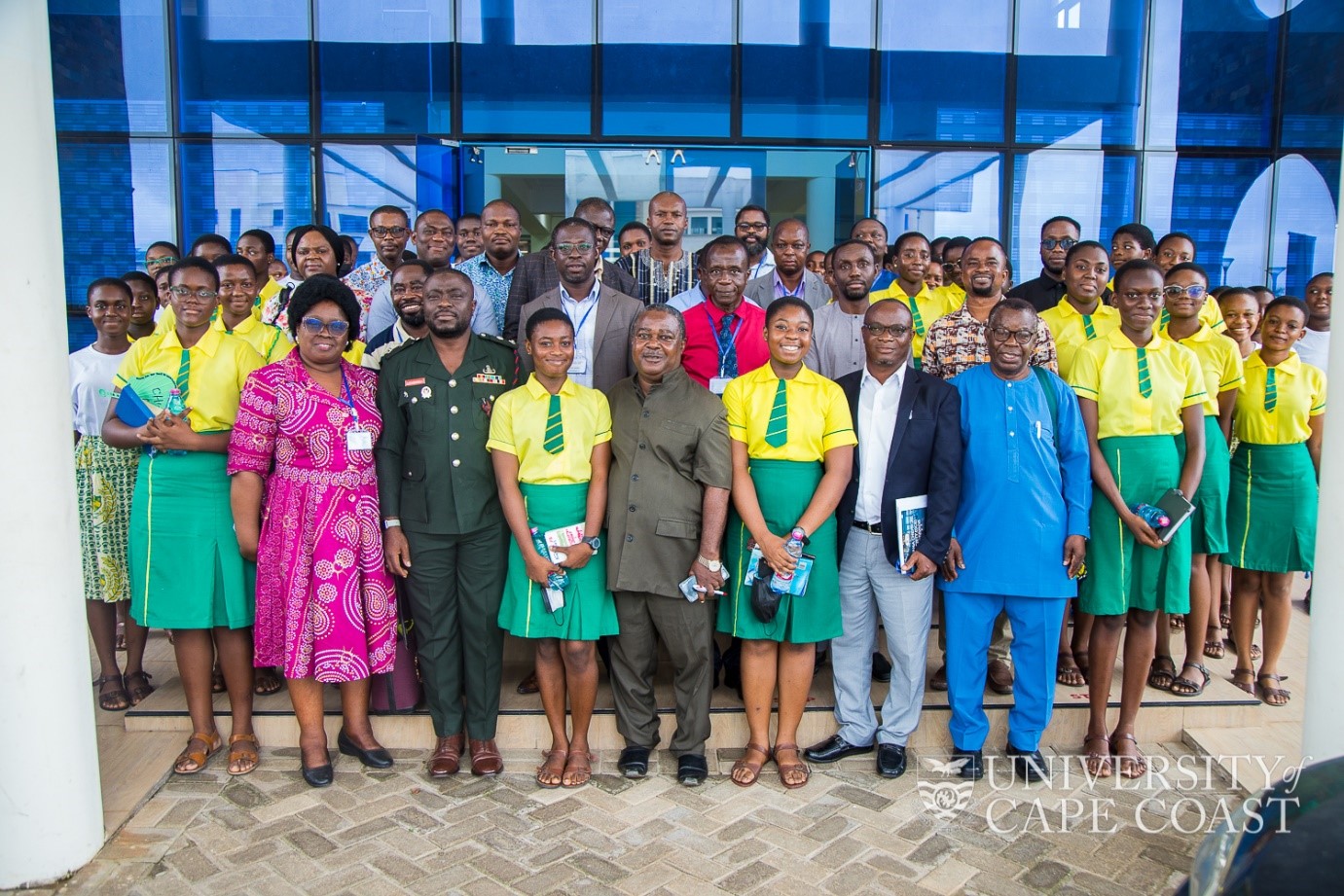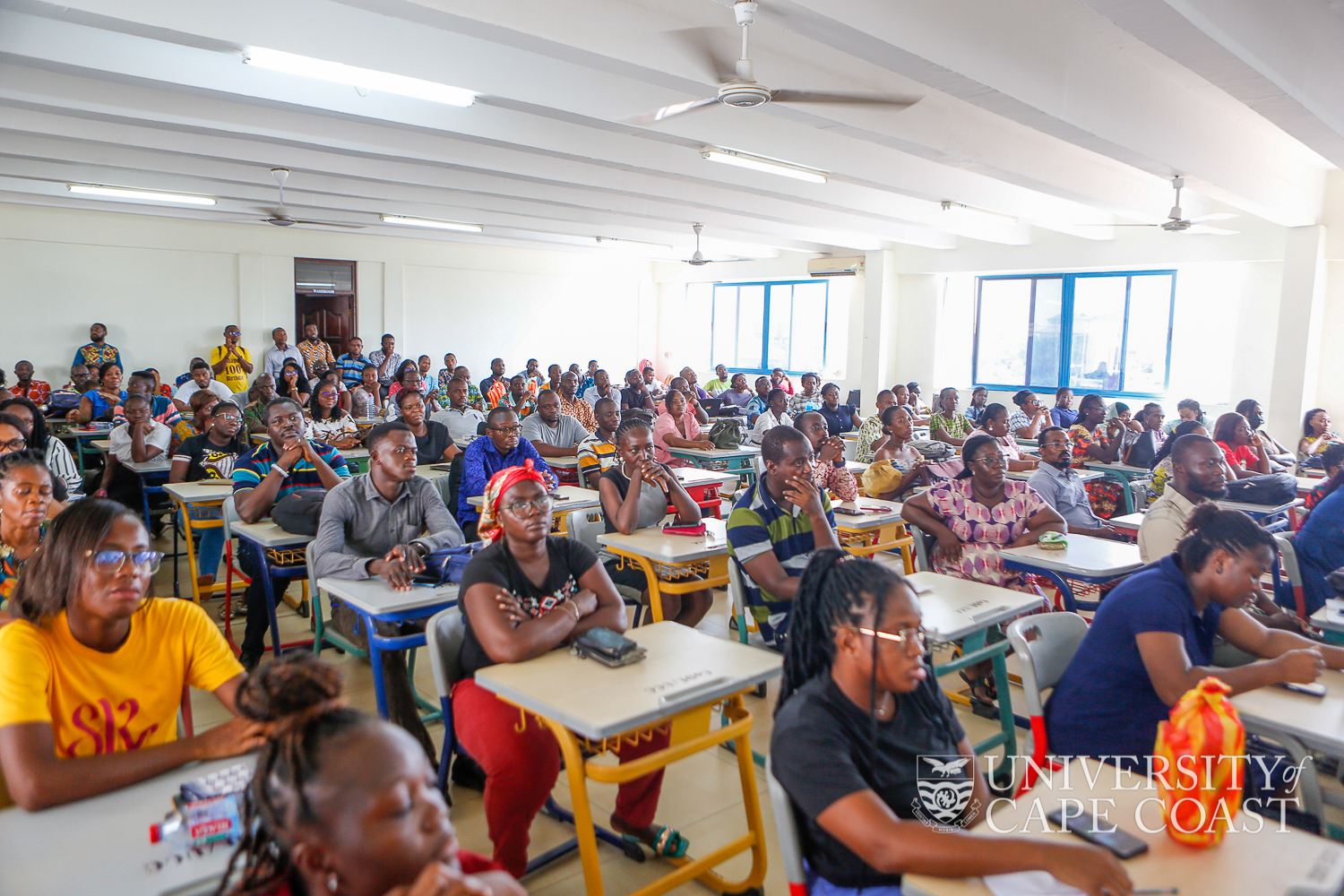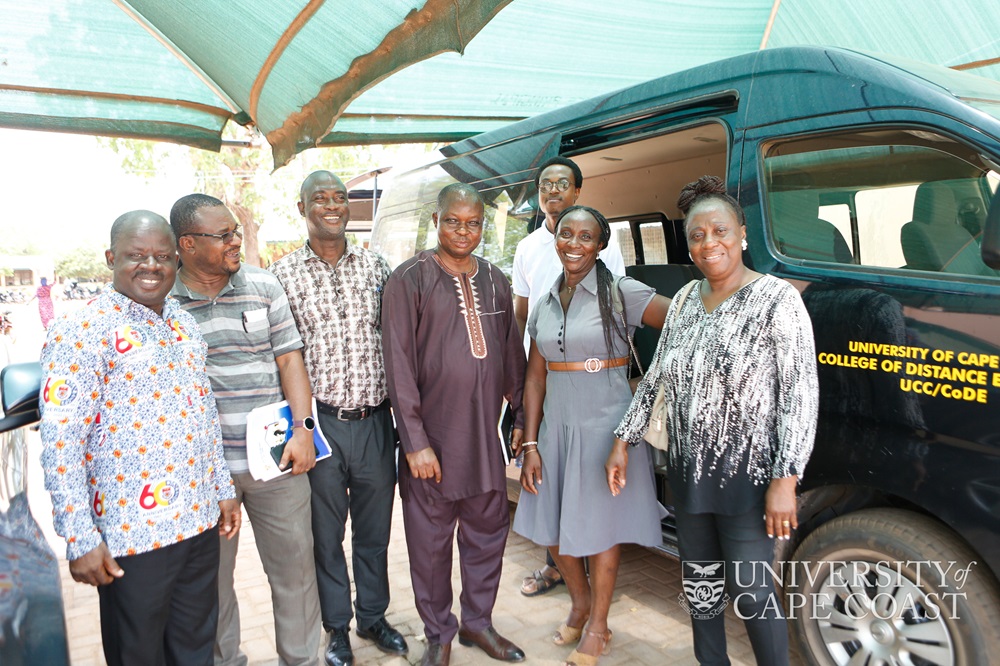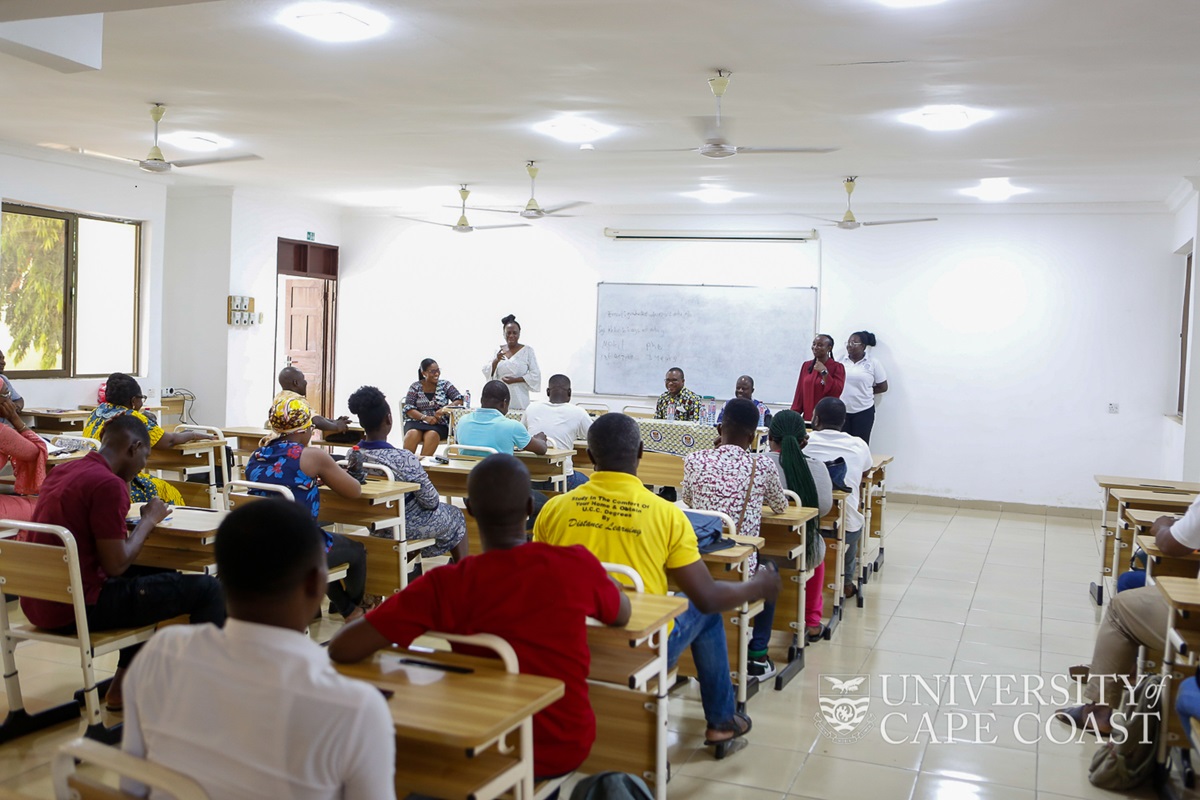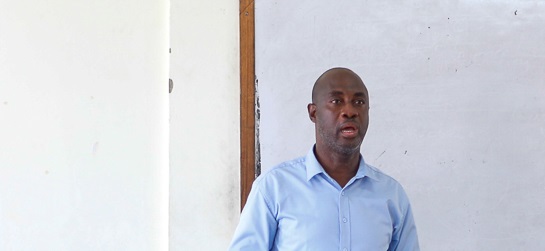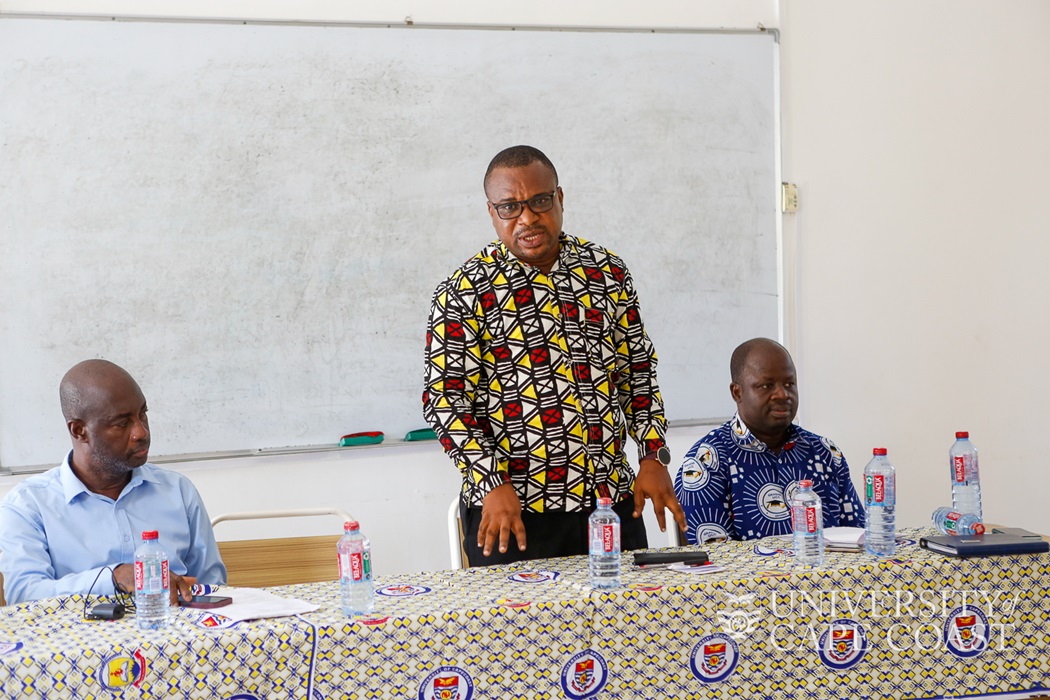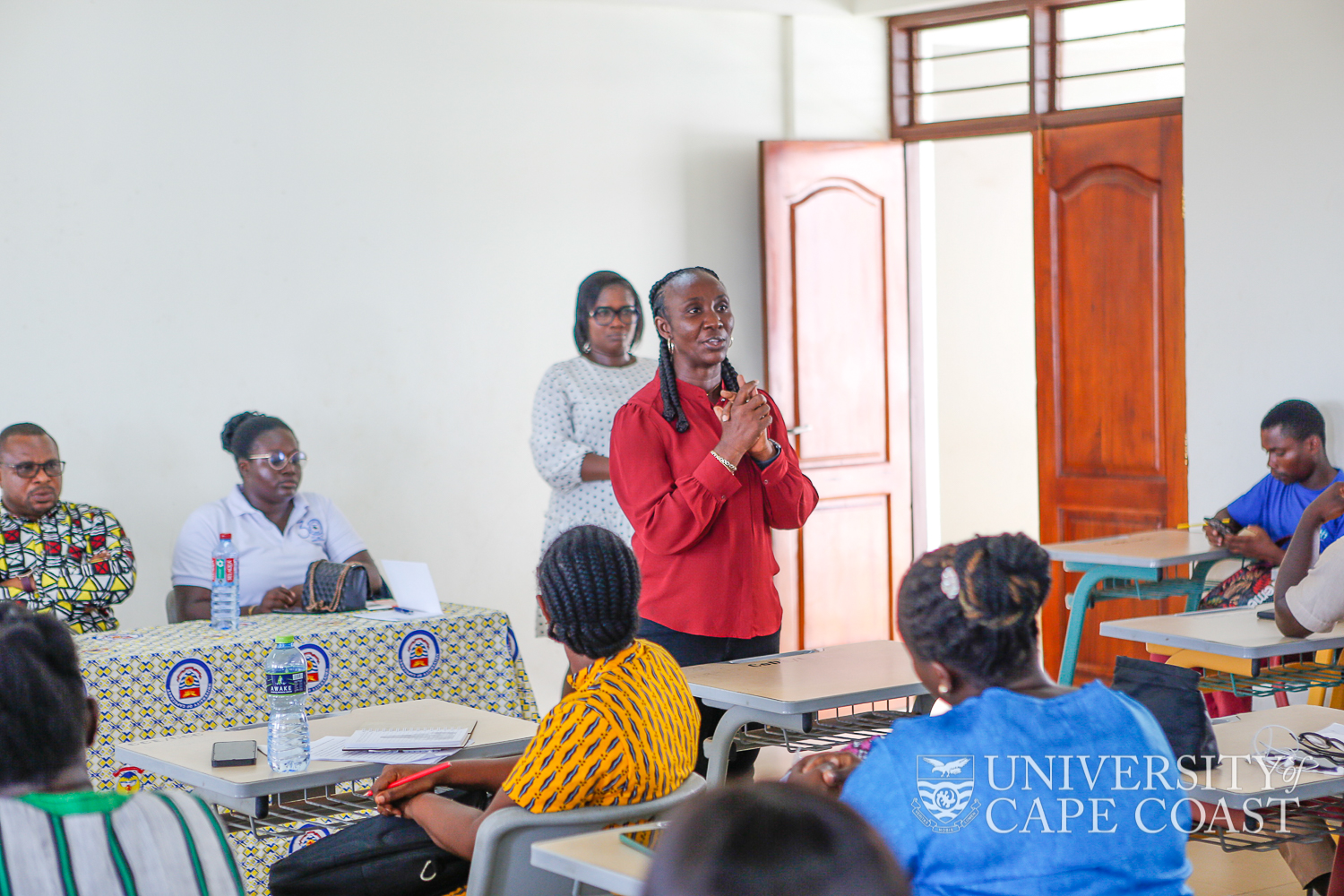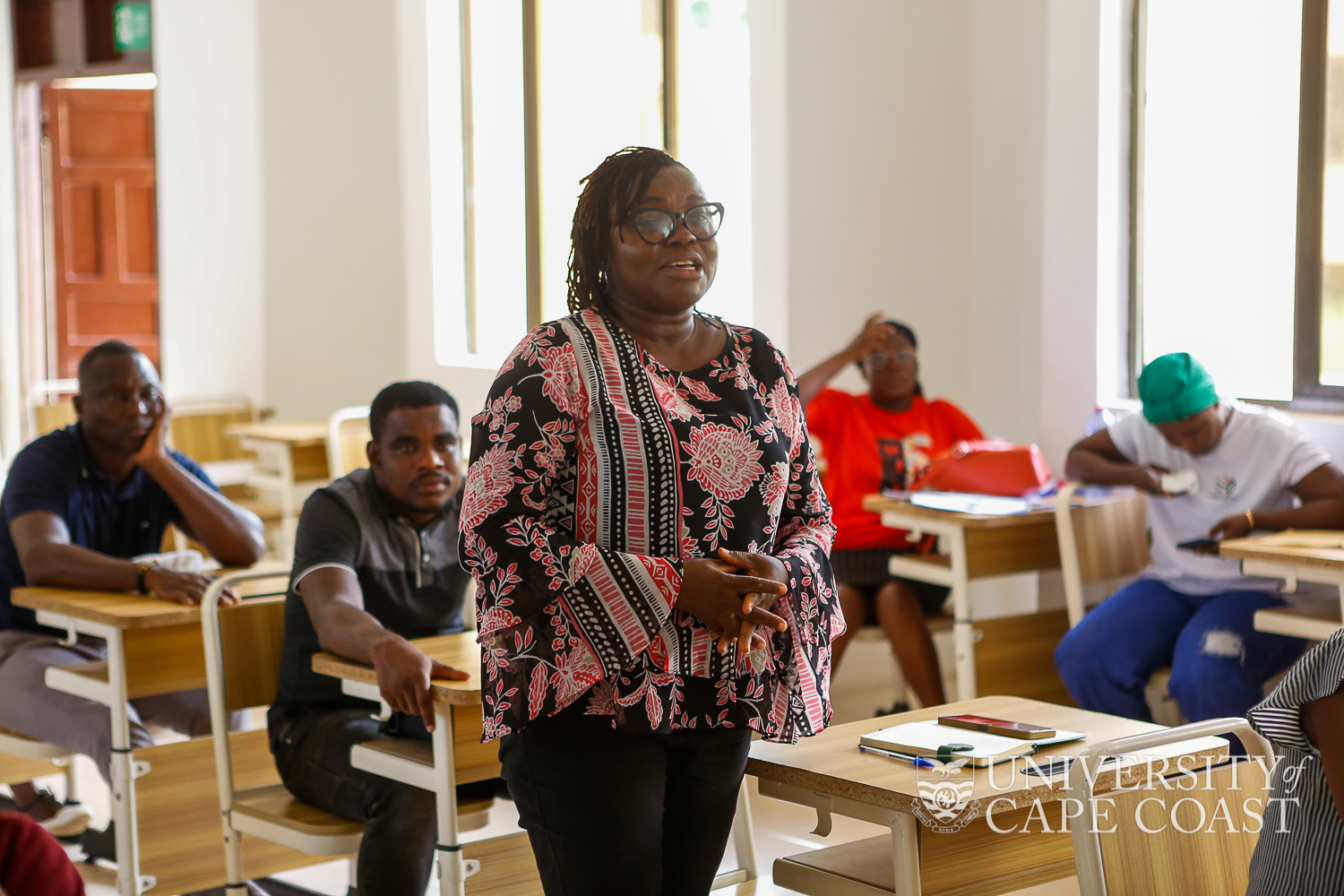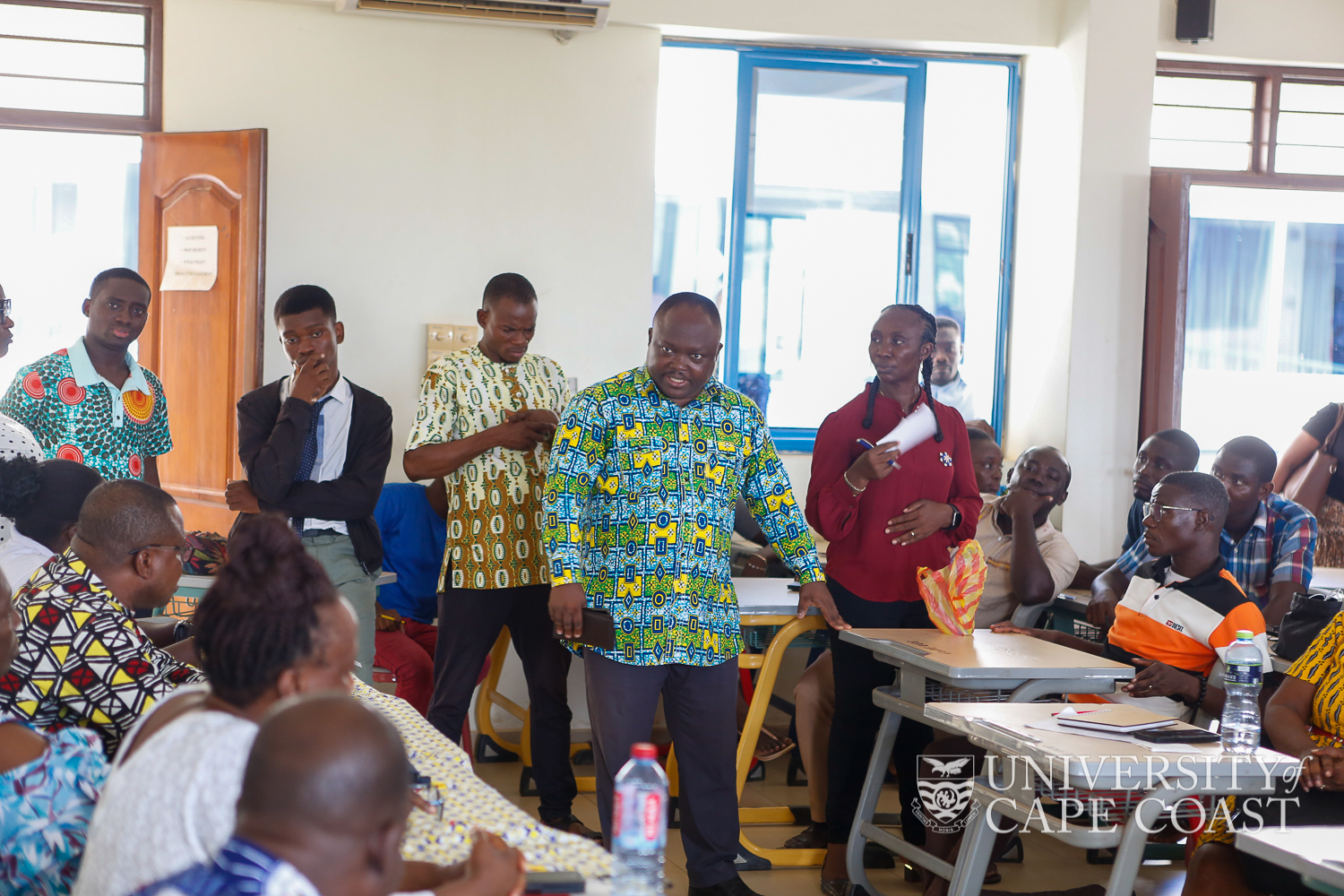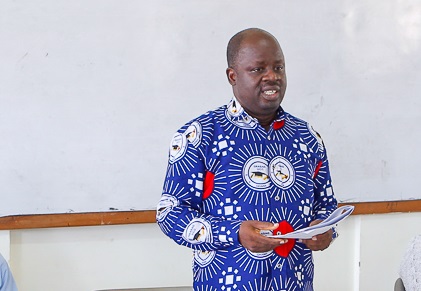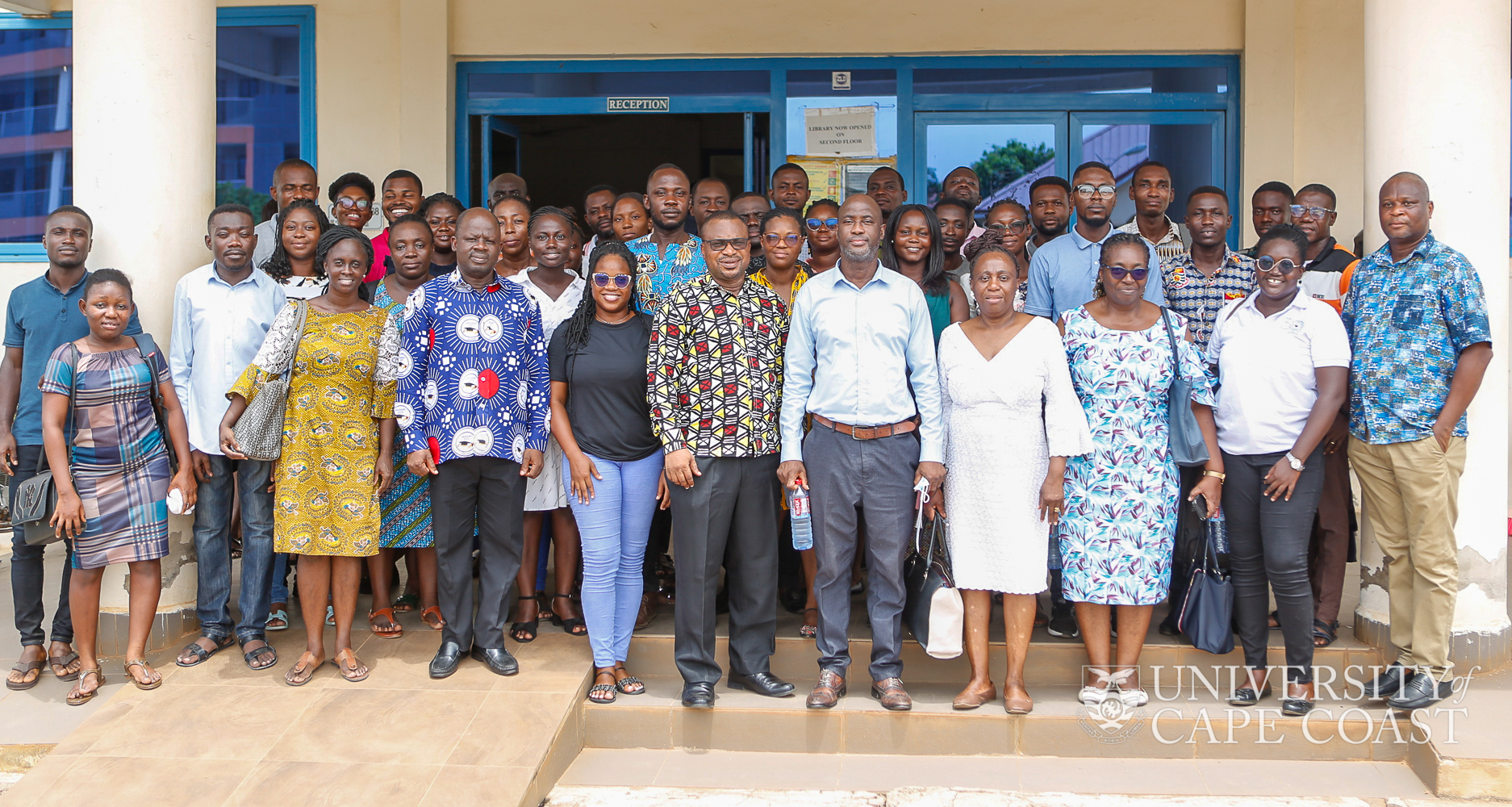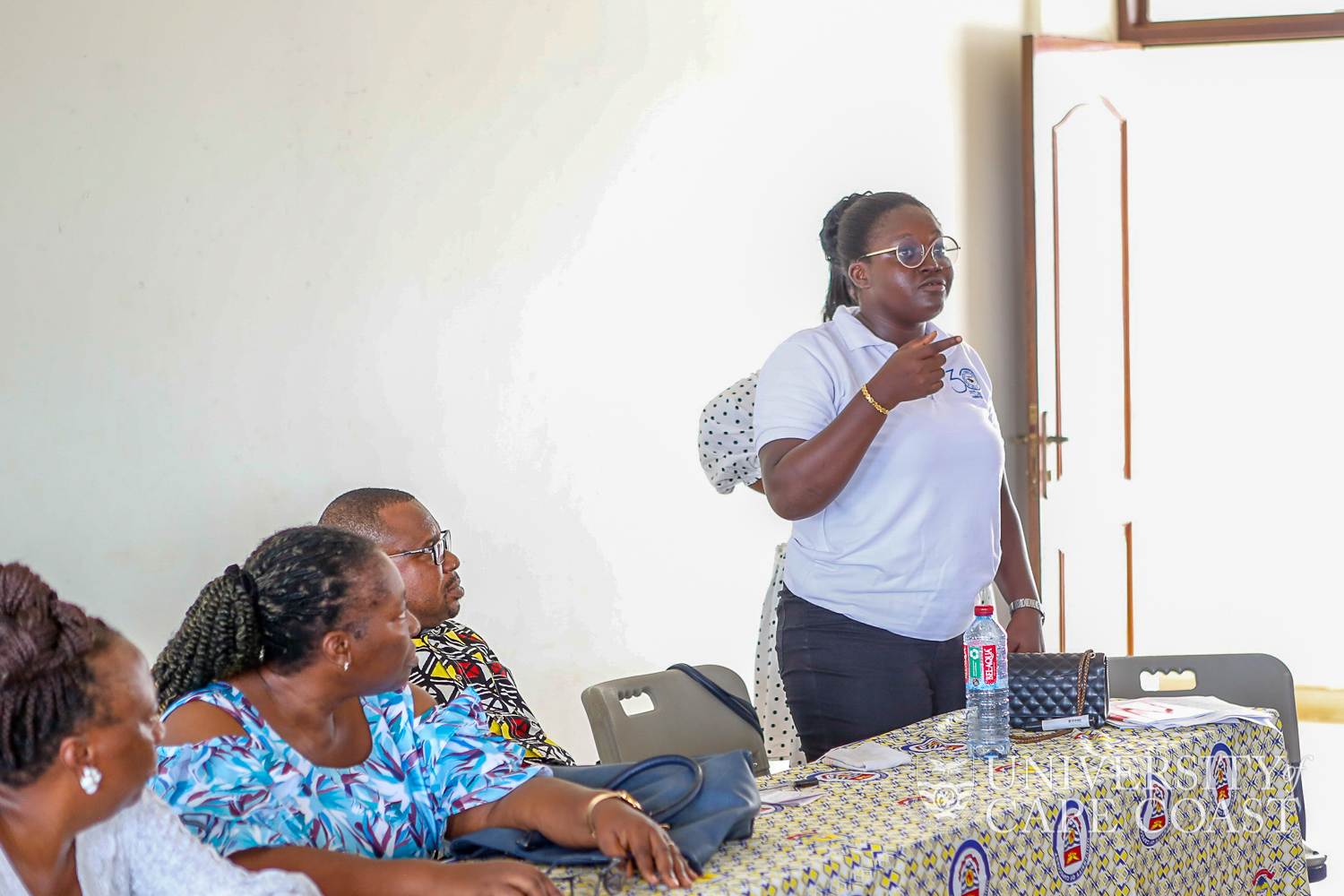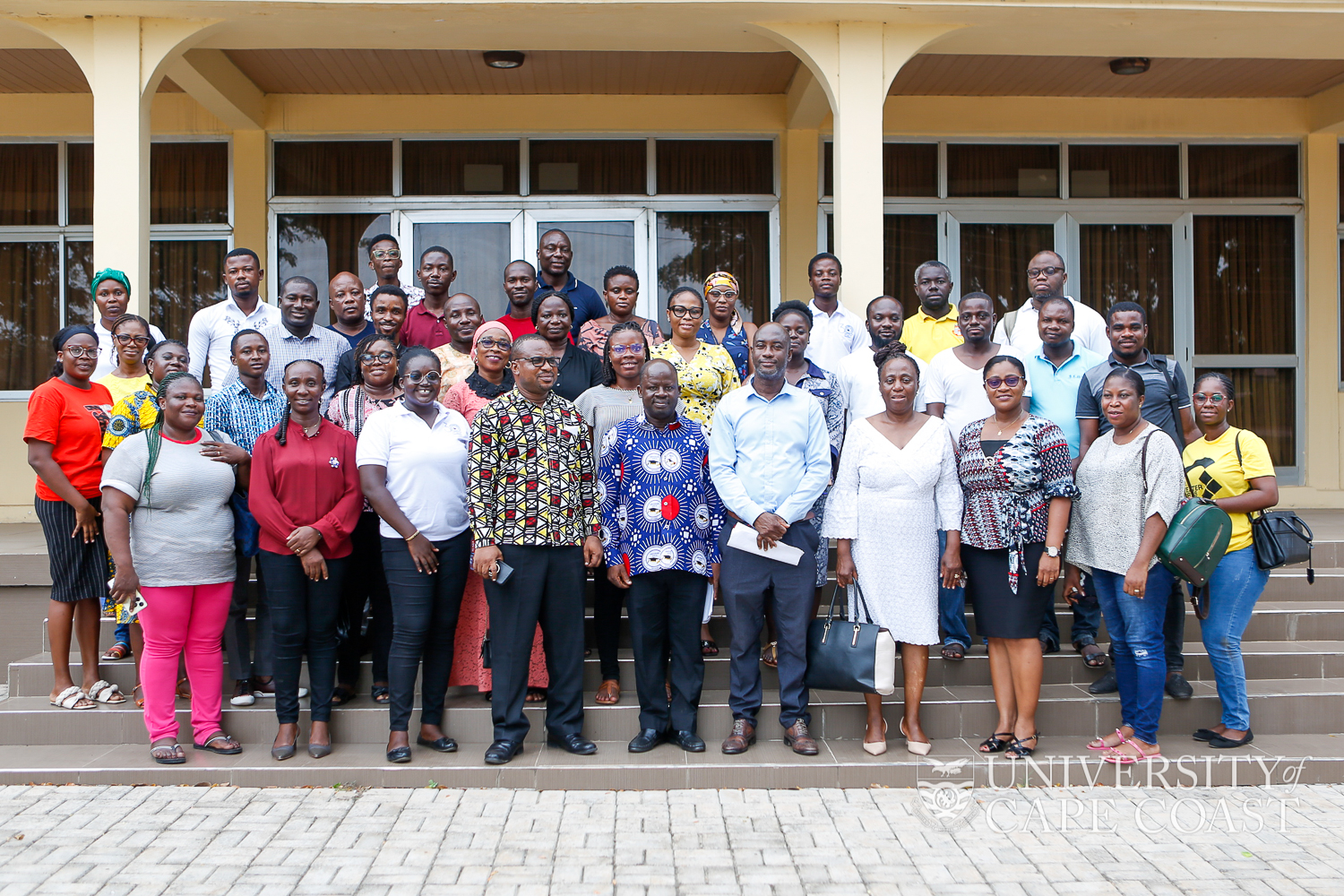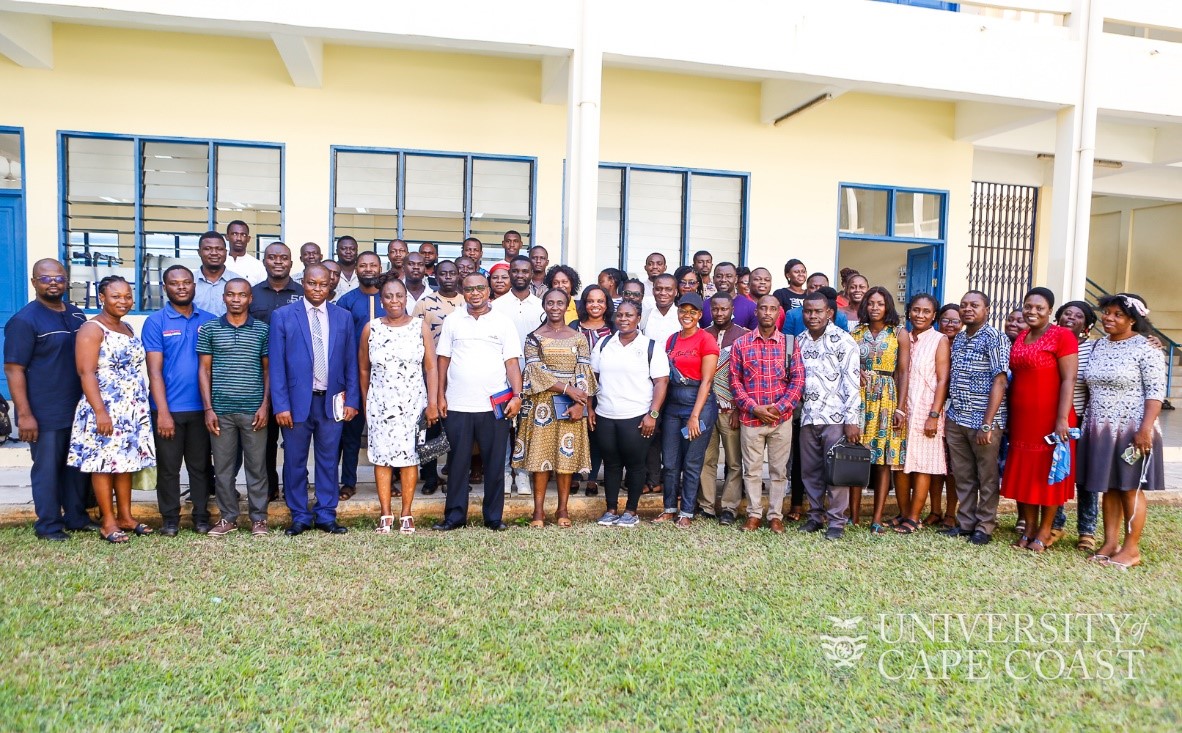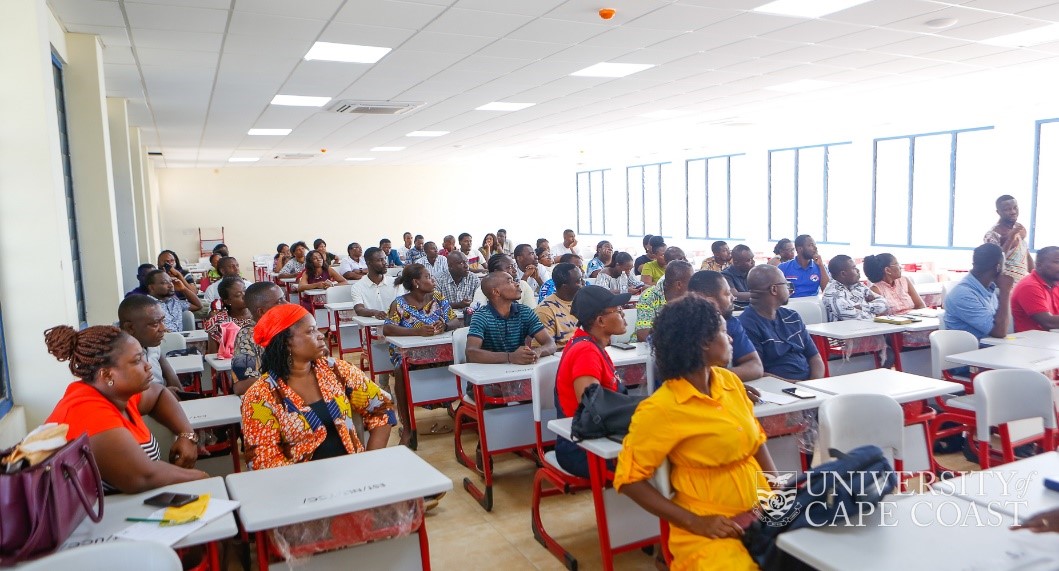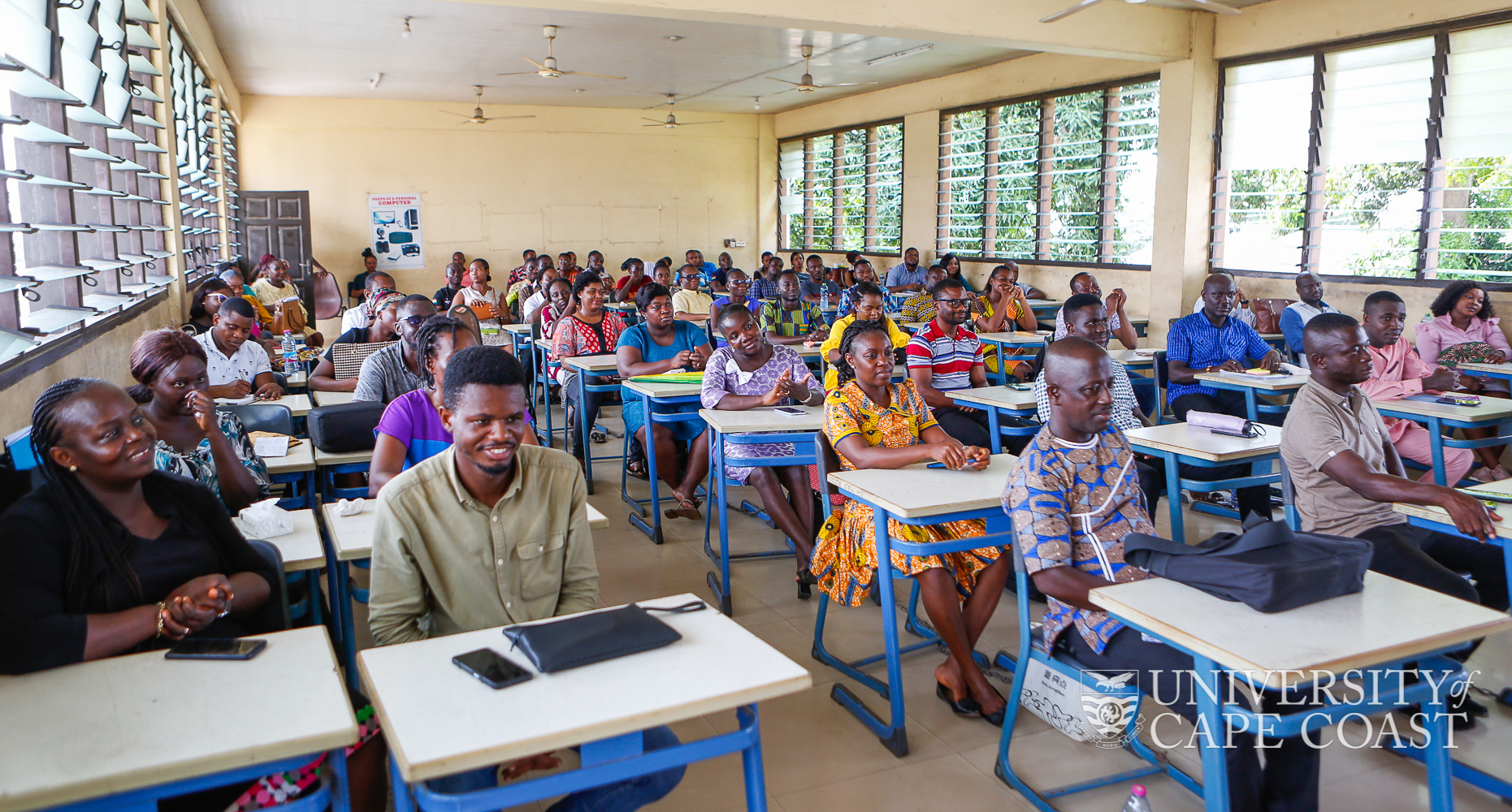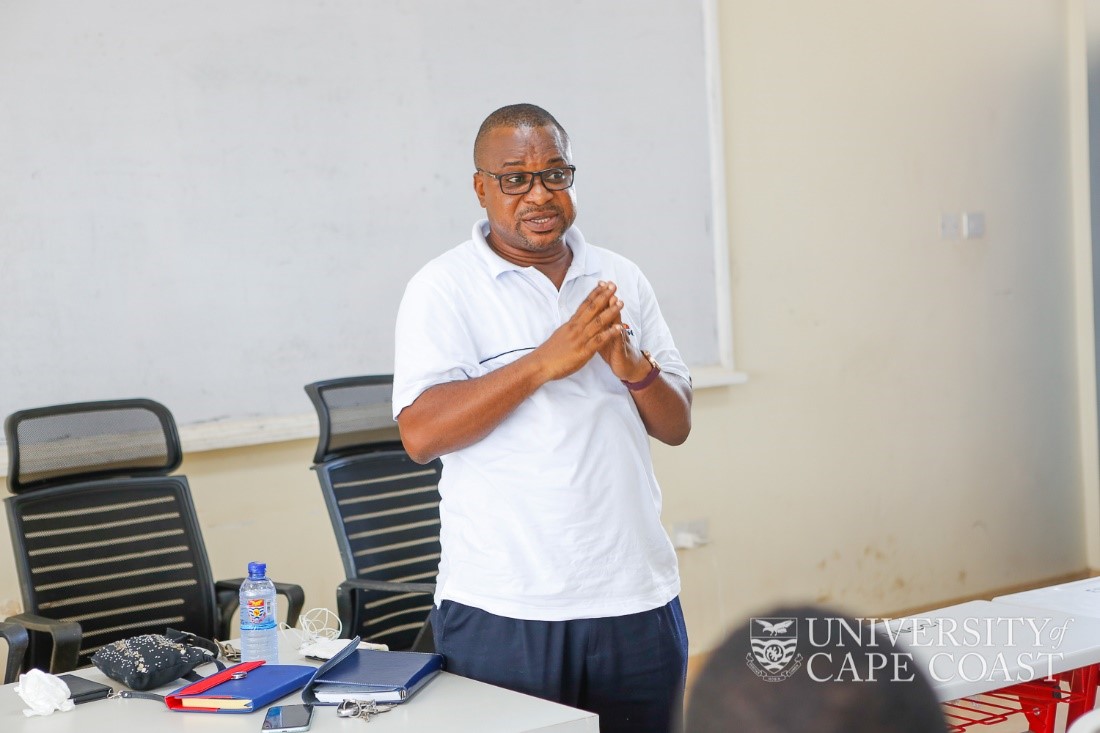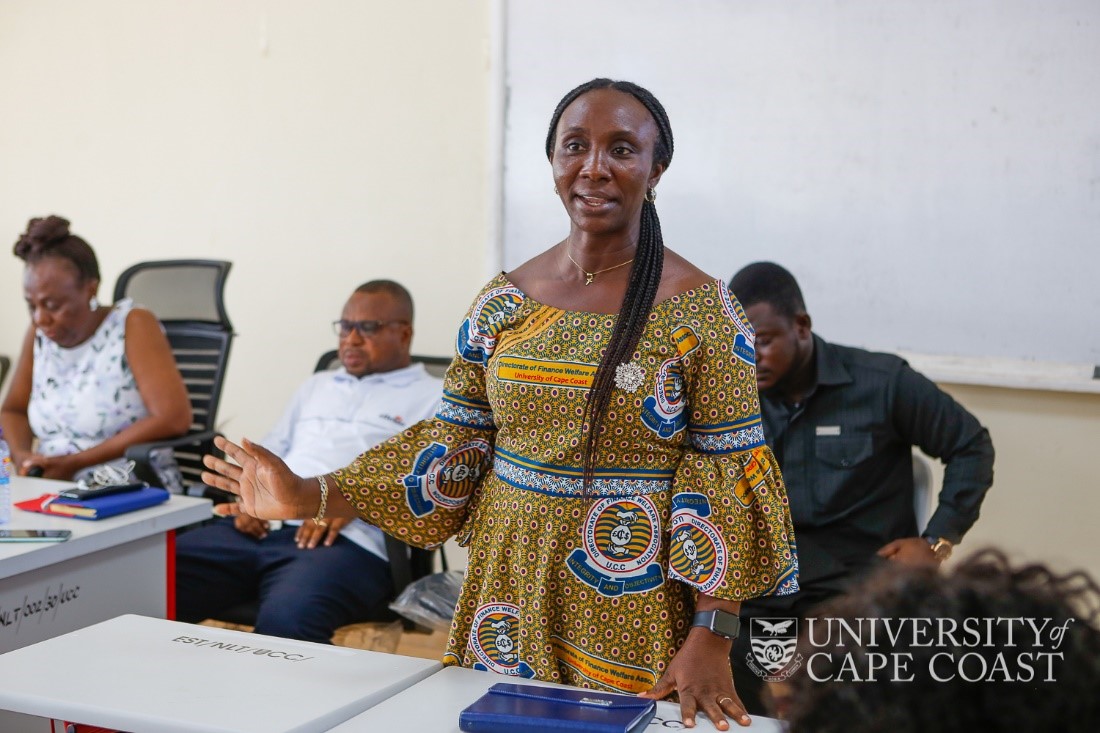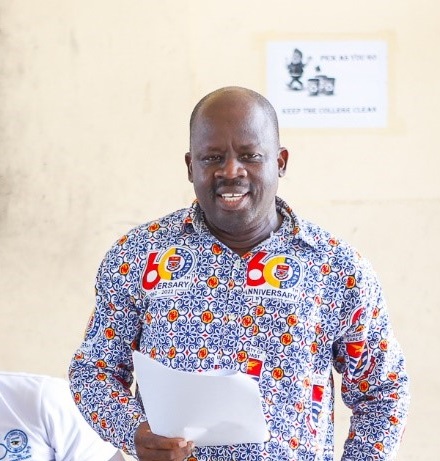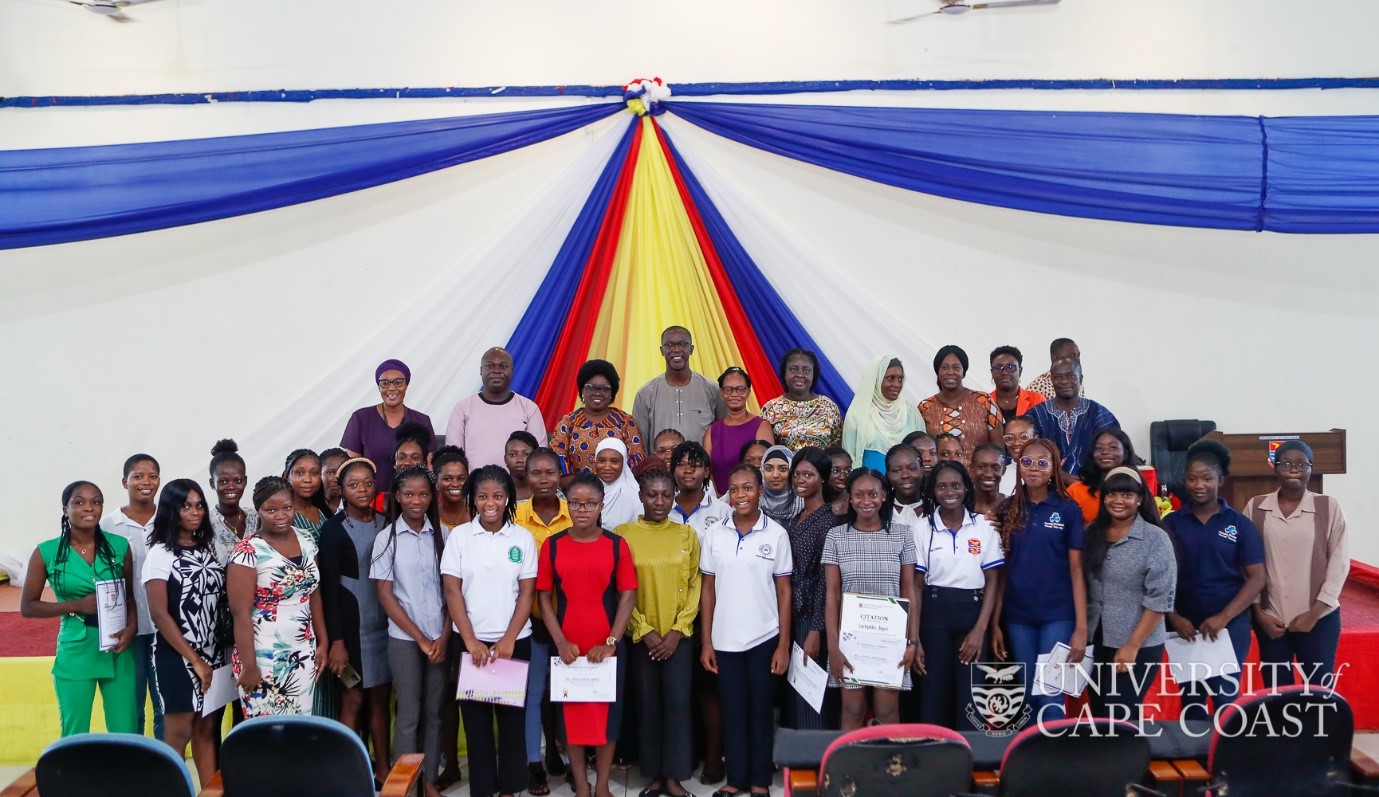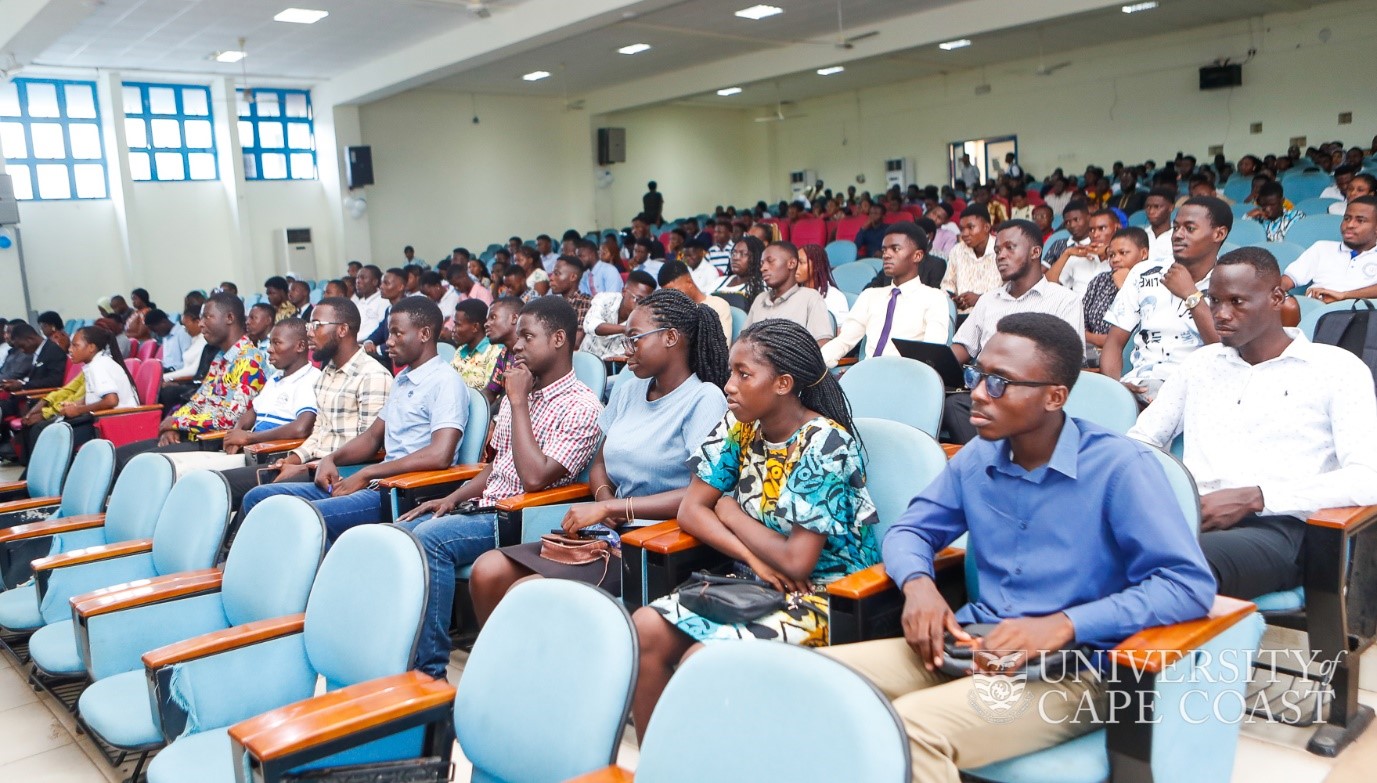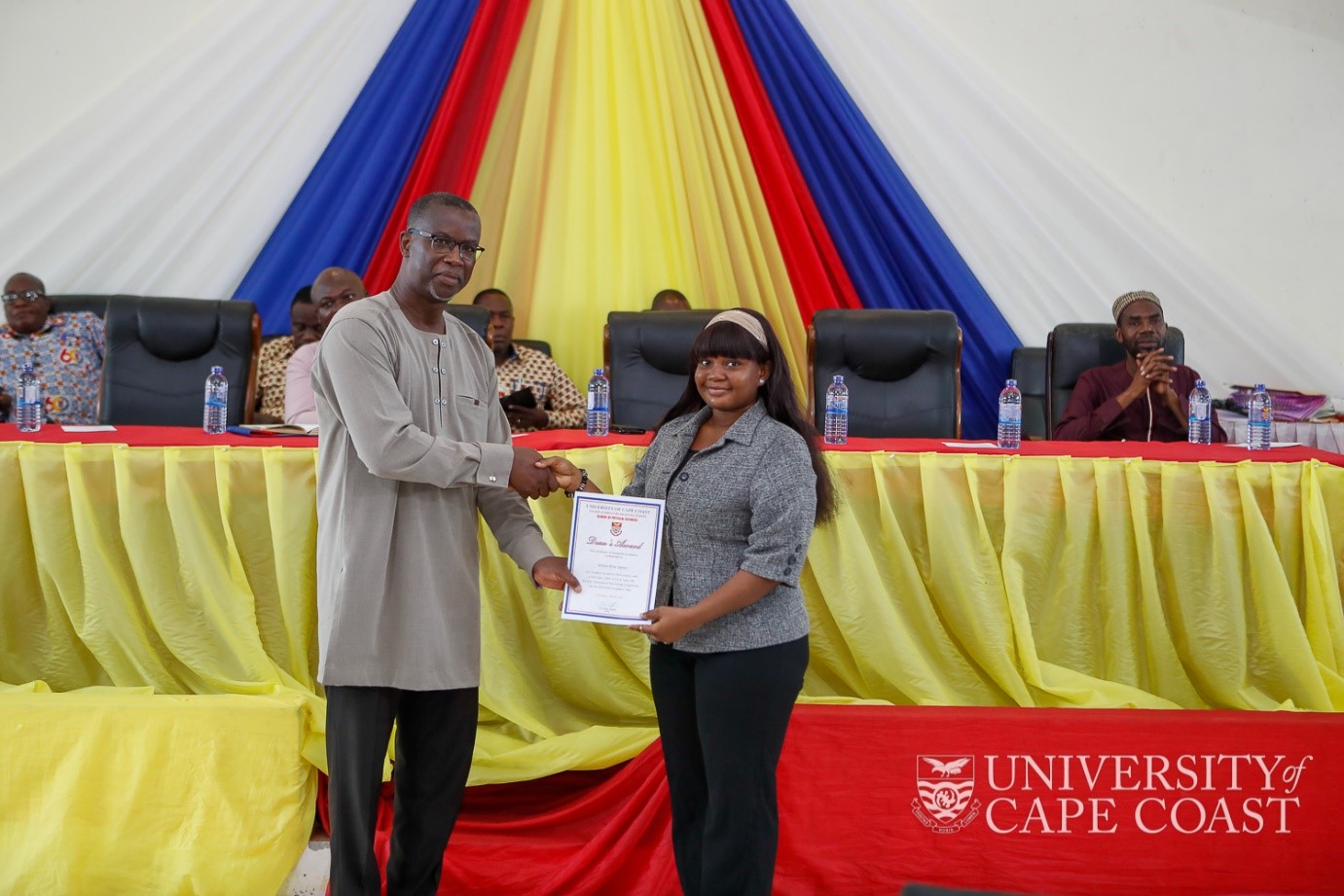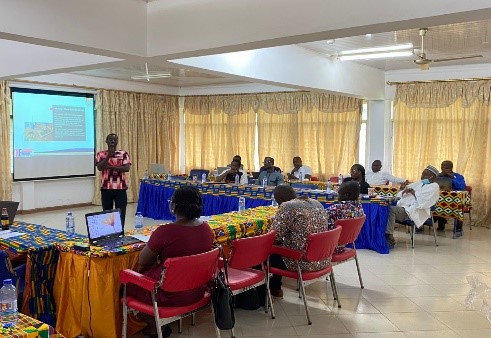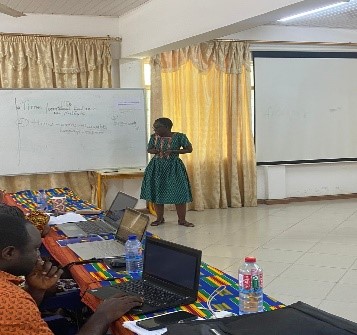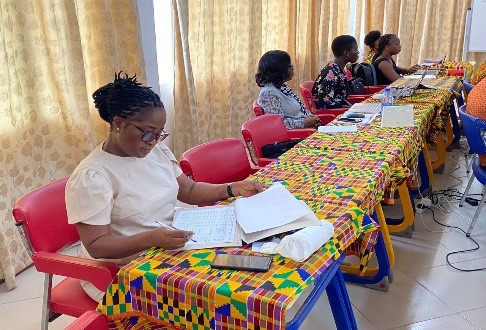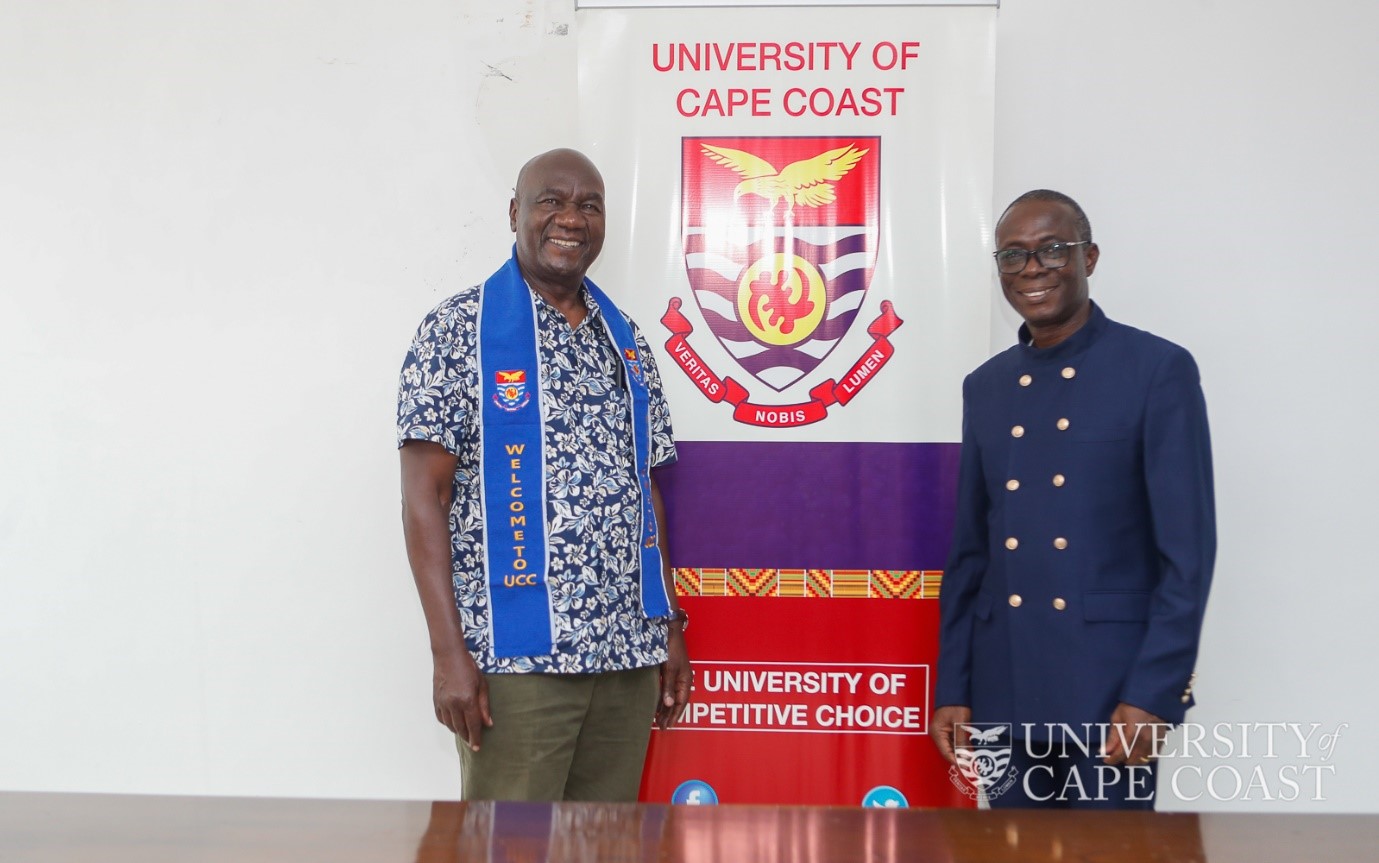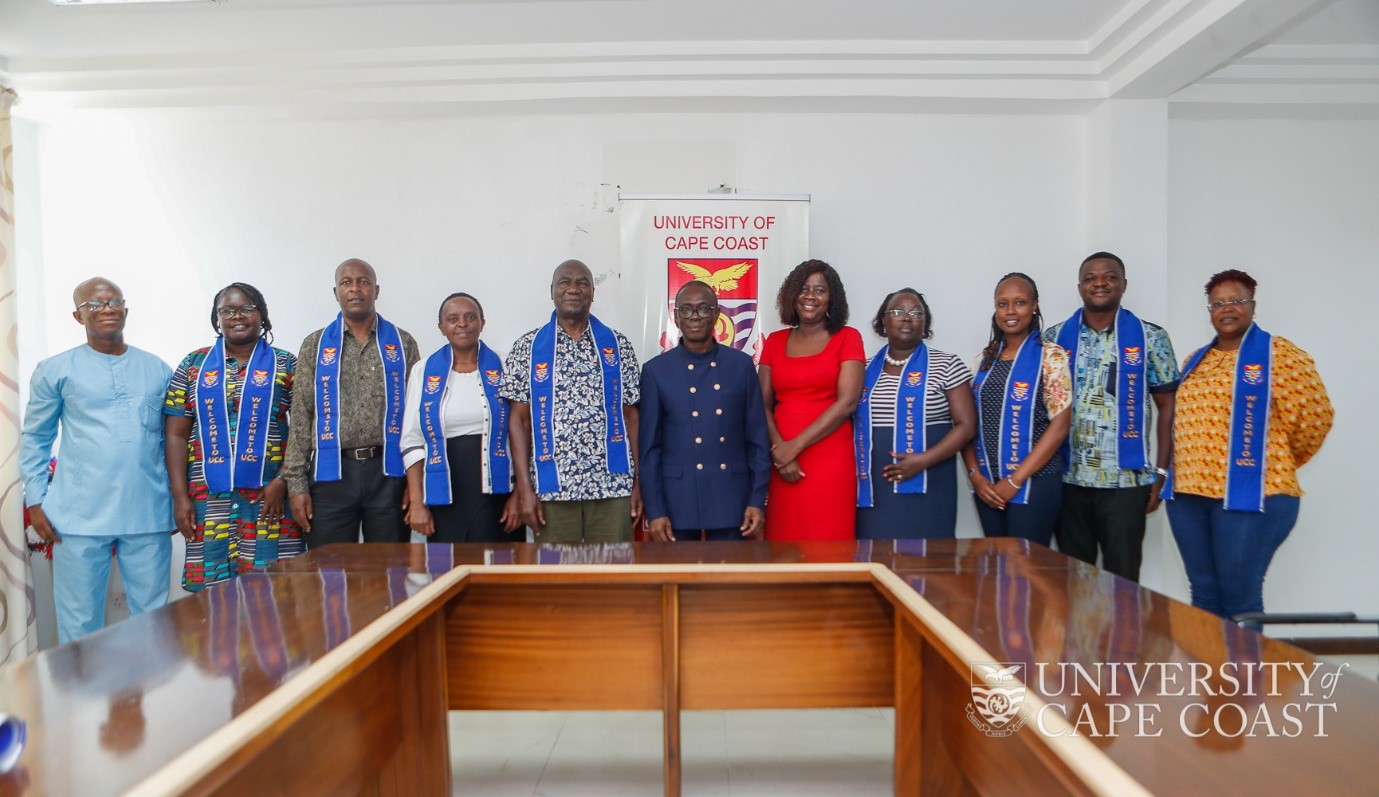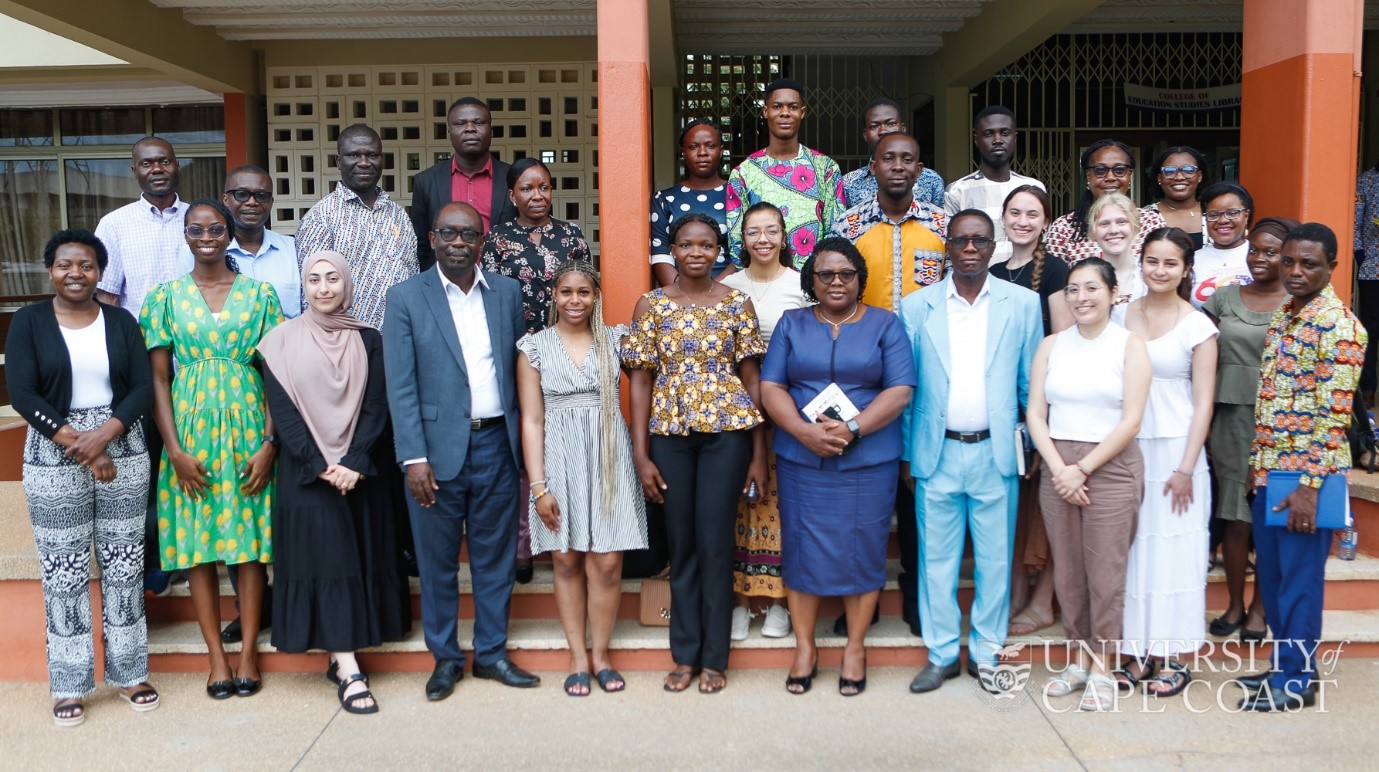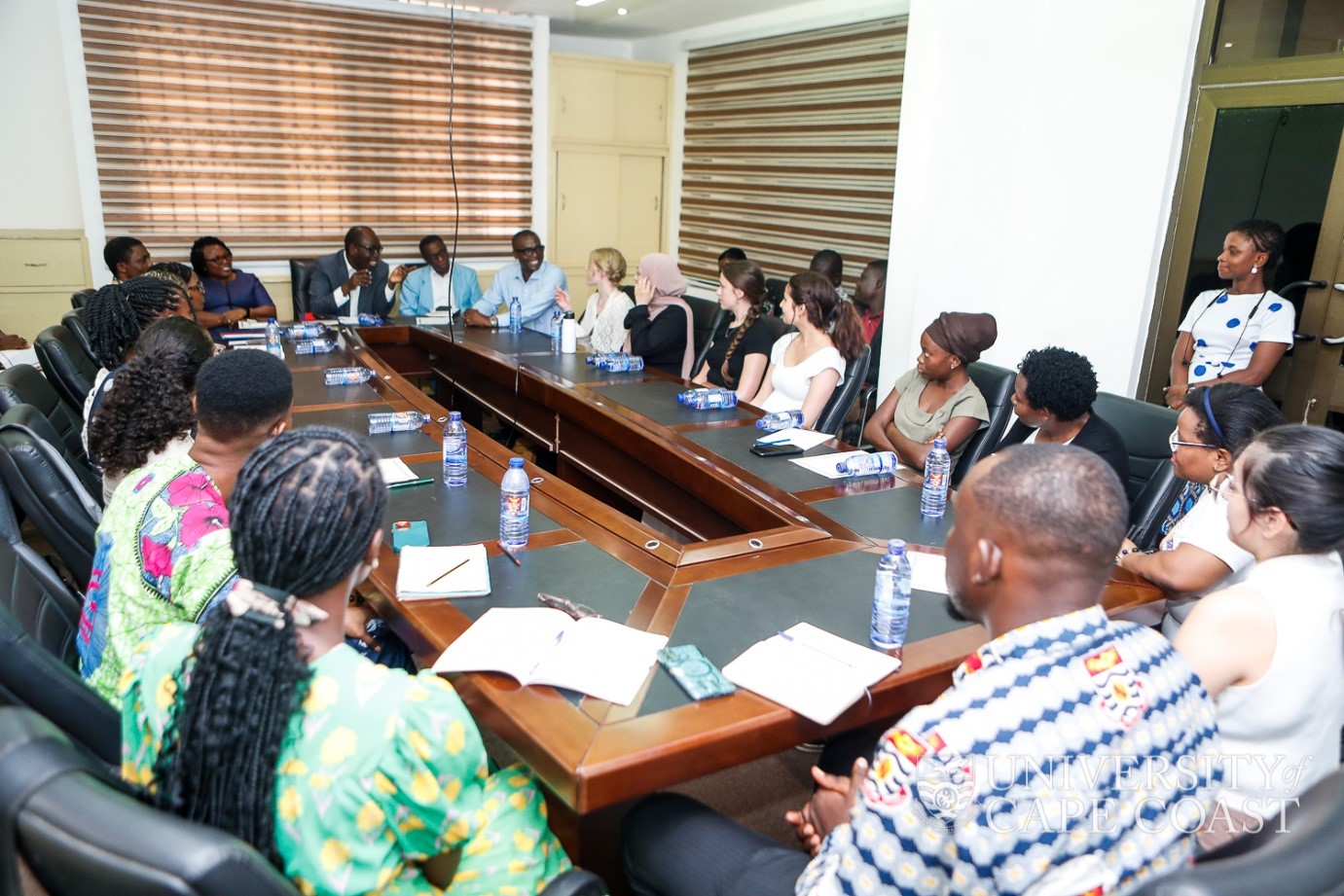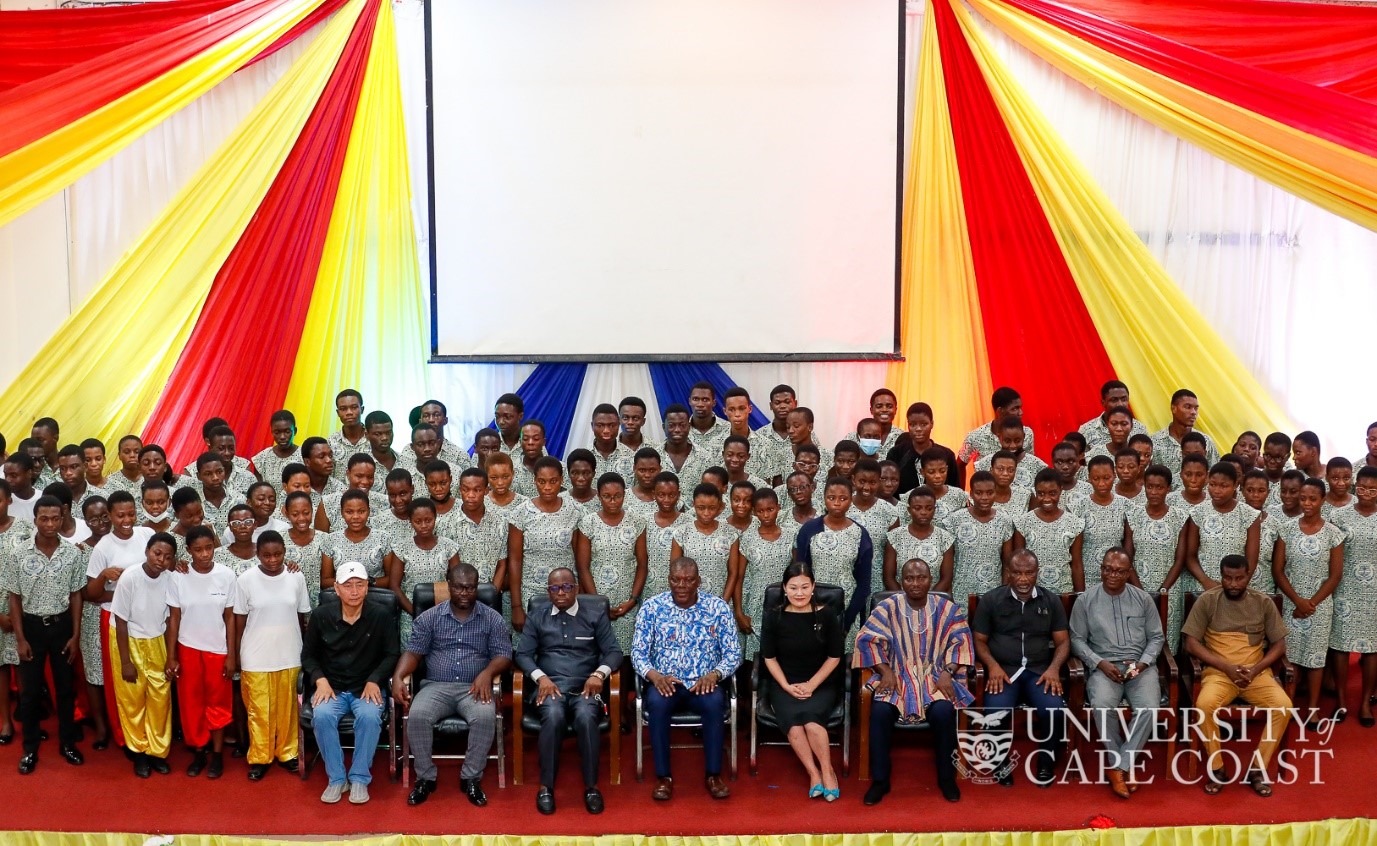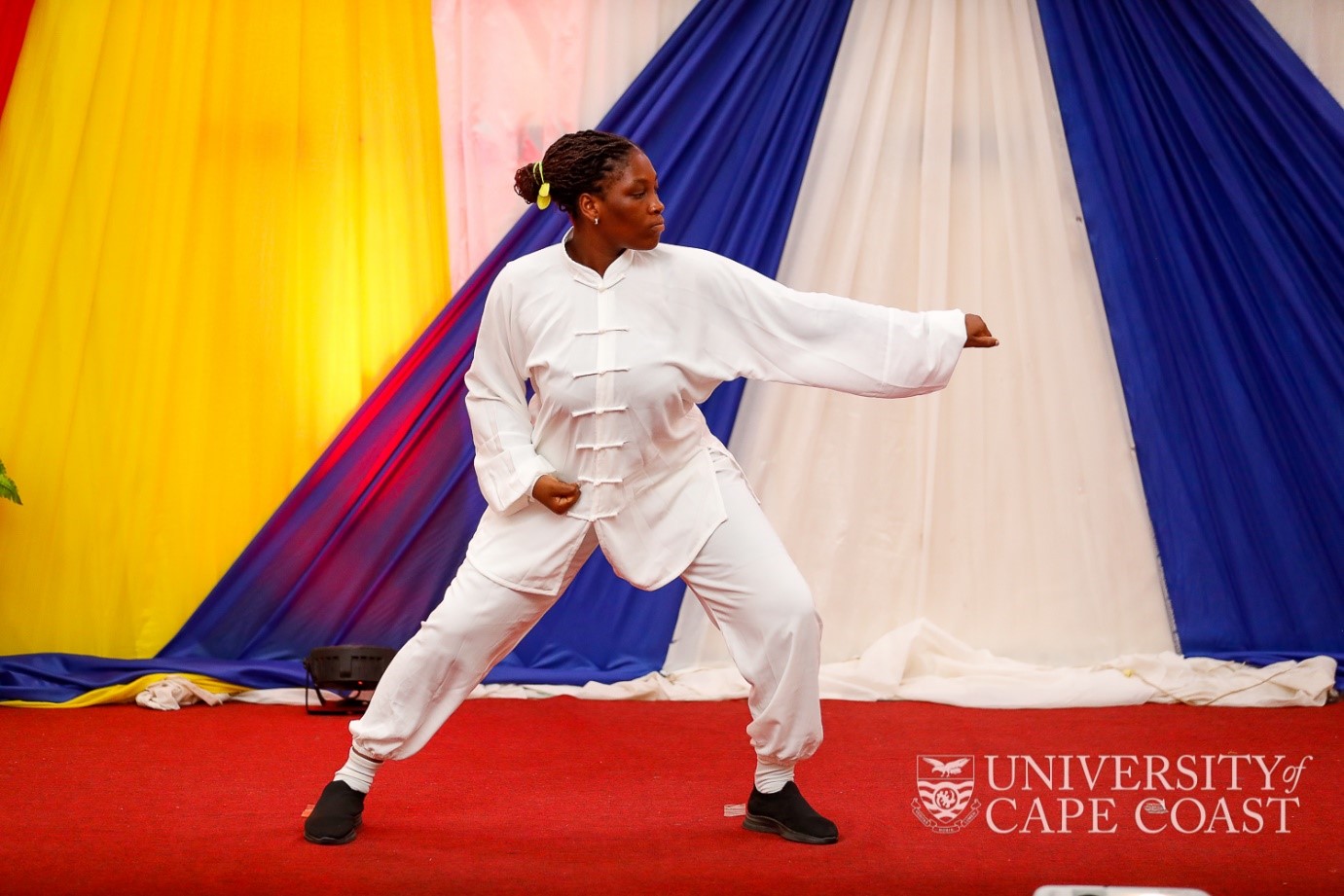Management of School of Graduate Studies, SGS, has ended its engagement sessions with the College of Distance Education (CoDE) postgraduate students at their designated study centres across the country for the 2023/2024 academic year.
The engagement sessions provided a platform for postgraduate students on University of Cape Coast distance programmes to connect with management of SGS, ask questions, and engage in insightful discussions regarding their academic journey.
The Management team that undertook the exercise were Dean of SGS, Prof. Sarah Darkwa; Vice-Dean, Prof. Ruphino Zugle; Coordinator for Postgraduate Programmes at CoDE, Dr. Felix Kumedzro; Senior Assistant Registrar, Mr. John Linscell Yen; Accountant, Mrs. Mavis Opoku-Boadu and Assistant Registrar, Mr. Isaac Yeboah Nsaful.
The SGS Team
Wrapping up the exercise for this academic year at separate meetings with the postgraduate students at Accra and Tema Study Centres, the Dean of SGS, Prof. Sarah Darkwa, expressed enthusiasm about the opportunity to interact directly with distance students to gain valuable feedback to enhance the University’s services to them.
Prof. Darkwa noted that "Our goal for this exercise is to ensure that all students, regardless of their location, feel connected to our academic community and have access to the resources they need to succeed.”
The Dean of SGS commended the students for making the best decision to pursue their postgraduate education at UCC- the number one University in Ghana, West Africa and 7th in Africa.
Dean of SGS, Prof. Sarah Darkwa
In his remarks, the Senior Assistant Registrar at SGS, Mr. John Yen, said the University had a responsibility to provide quality academic services to students who form its major client. He said it was in that direction that Management of the School had travelled to interact with students to provide them guidelines on how to succeed as students of the University.
"Our goal is to create an environment where distance learners feel supported and empowered like their colleagues on campus,” Prof. Zugle noted.
Mr. Yen also took the opportunity to explain the structures of the University and mandate of SGS.
Senior Assistant Registrar, Mr. John Linsell Yen
Mr. Yen advised the students to be responsible as junior members of the University. He drew their attention to the rules and regulations in the Students Handbook, Academic Policies and Regulations for Graduate Studies, Thesis, Dissertation and Project Work Guide among others.
“You will succeed in your academic endeavours at UCC if you acquaint yourselves with these documents” he noted. Mr. Yen informed the students that the University would continue to provide a congenial atmosphere to promote teaching, learning and research.
Speaking at the programme, the Postgraduate Coordinator at CoDE, Dr. Felix Kumedzro, explained that the engagement session marked the beginning of great things SGS and CoDE had in store for postgraduate students
“This engagement series has come to stay so you should feel free to bring out the challenges you have been facing with your academic work at UCC” he announced.
He encouraged them to take interest in the exercise to interact with officials of SGS and the University to get the right information to guide them to excel in their studies.
Postgraduate Coordinator at CoDE, Dr. Felix Kumedzro
In her presentation, the Accountant at SGS, Mrs. Mavis Opoku-Boadu prompted students of their obligation to settle their fees early to enable the University to continue to provide them with quality services.
“It’s essential for postgraduate students to manage their finances effectively and make timely payments to avoid any disruptions to your academic journey” she added.
Mrs. Boadu advised the students to make judicious use of their money and develop a saving culture to mobilise funds to pay their fees.
Accountant at SGS, Mrs. Mavis Opoku Boadu
“We are very flexible with the payment of fees so you can pay it in instalments before the semester examination starts” she told them.
She said all payments must be made at the designated banks as well as the mobile short codes the University had communicated to students.
Making a presentation on aspects of the Academic Policies and Regulations for Graduate Studies, Mr. Isaac Yeboah Nsaful, noted that the pass mark at the graduate level was 60% and any student who score below that mark in any course would have to rewrite that course again.
He explained that students pursuing research masters but could not complete the thesis component of their programmes had the opportunity to step down to a lower masters’ degree in the same programme.
Another student asking a question during the programme at Papafio Centre
“Let me remind you that if you fail to meet the 2.0 minimum Cumulative Grade Point Average for non-research masters, then all your efforts have been in vain, you cannot graduate from the programme you’re pursuing. In the same way, those who want to continue with the research component of their programmes need a minimum of 2.5 minimum CGPA to progress or else the only option is for them to step down” he explained.
Assistant Registrar at SGS, Mr. Isaac Yeboah Nsaful
Mr. Nsaful took the students through channels of communication with SGS and urged them to follow the procedure when there was the need to reach out to the School.
He further explained the duration, mode of delivery and structure of postgraduate programmes; regulations for award of degrees; requirements for graduation
The team responded to questions and also noted down suggestions and recommendations from students during the interaction sessions.
The SGS Team with some lecturers and students at the Papafio Centre, Accra
The Vice President of Graduate Students Association of Ghana (GRASAG)-UCC chapter, Ms. Miriam Frimpong, noted that the Association, which was the umbrella body of all postgraduate students, would continue to ensure the welfare of members.
Ms. Frimpong said the executives had put in place measures to actively involve CoDE postgraduate students in the activities of the Association.
Vice-President of GRASAG-UCC, Ms. Marian Frimpong
Throughout the engagement the CoDE postgraduate students at the various centres the teams visited commended the team for the opportunity to interact with them and also respond to issues affecting their studies. The students believed that such initiatives highlight if sustain would help CoDE postgraduate students feel more integrated into the University of Cape Coast environment despite their remote status.
The SGS Team with students at Tema Study Centre
According to some of the students, sustaining the engagement sessions would go a long way to confirm the School of Graduate Studies' dedication to providing a supportive and inclusive learning environment for all students.
Source: Documentation and Information Section-UCC

